Gaza protest: IU admin takes action with many arrests, sweeps tents from Dunn Meadow
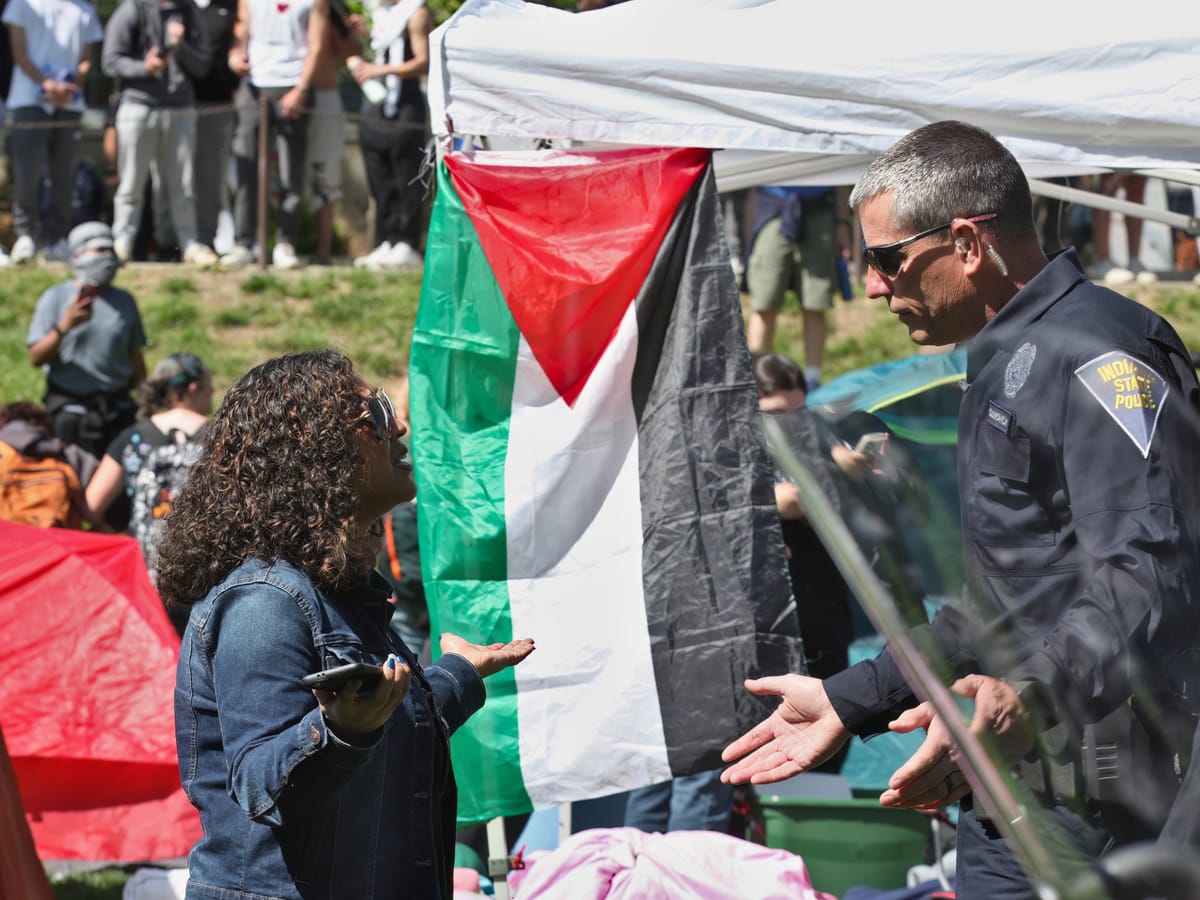
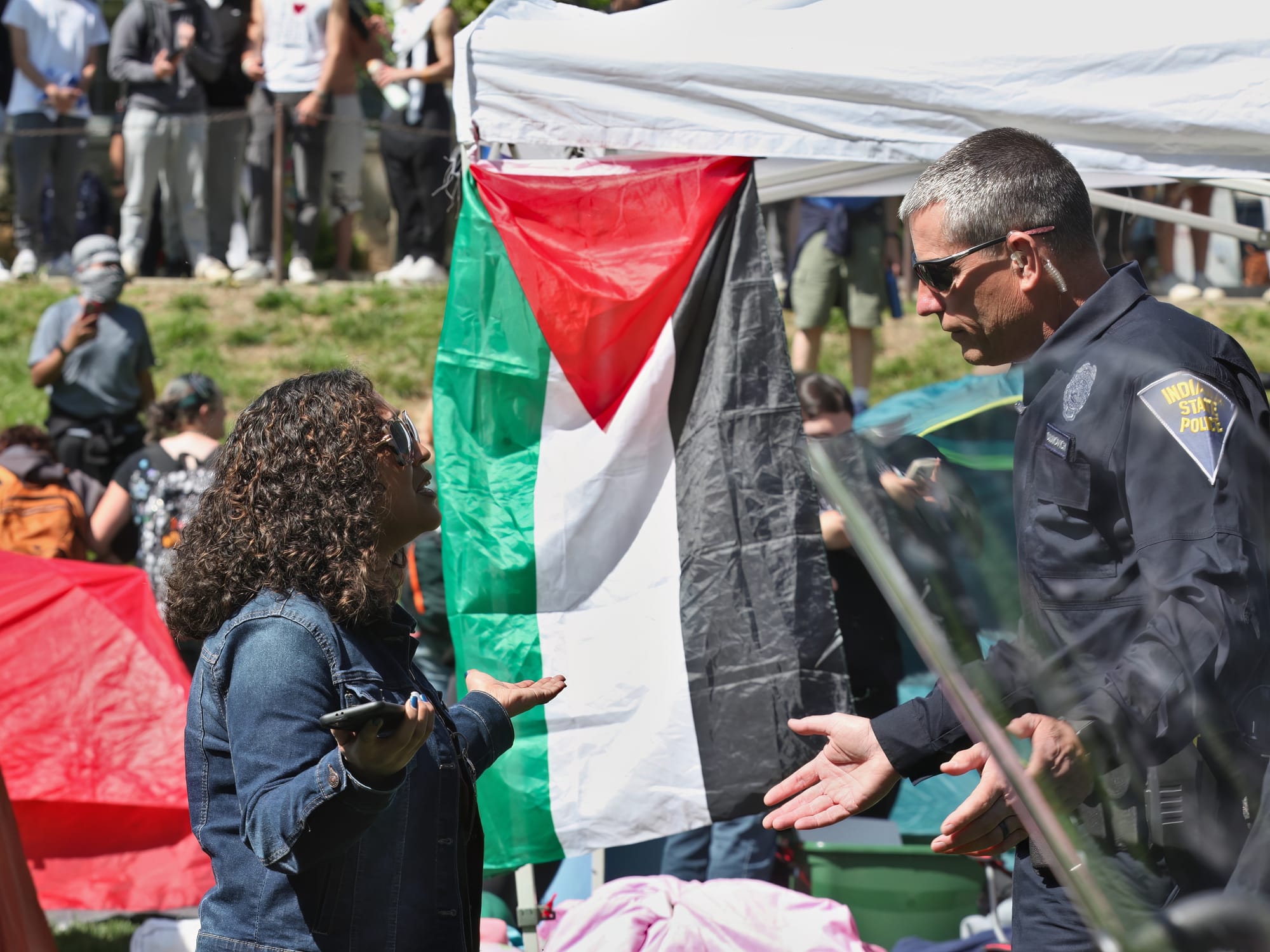
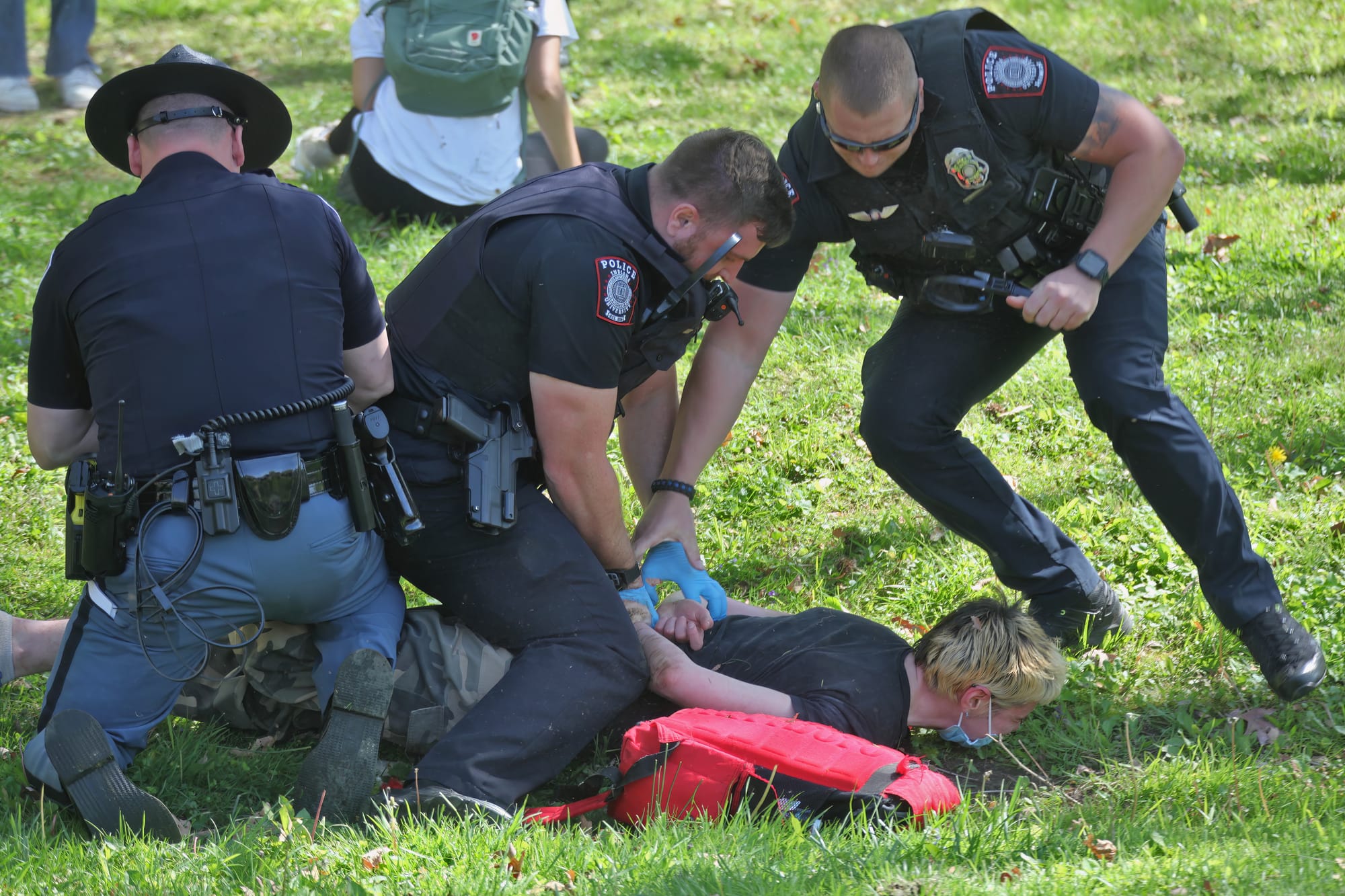
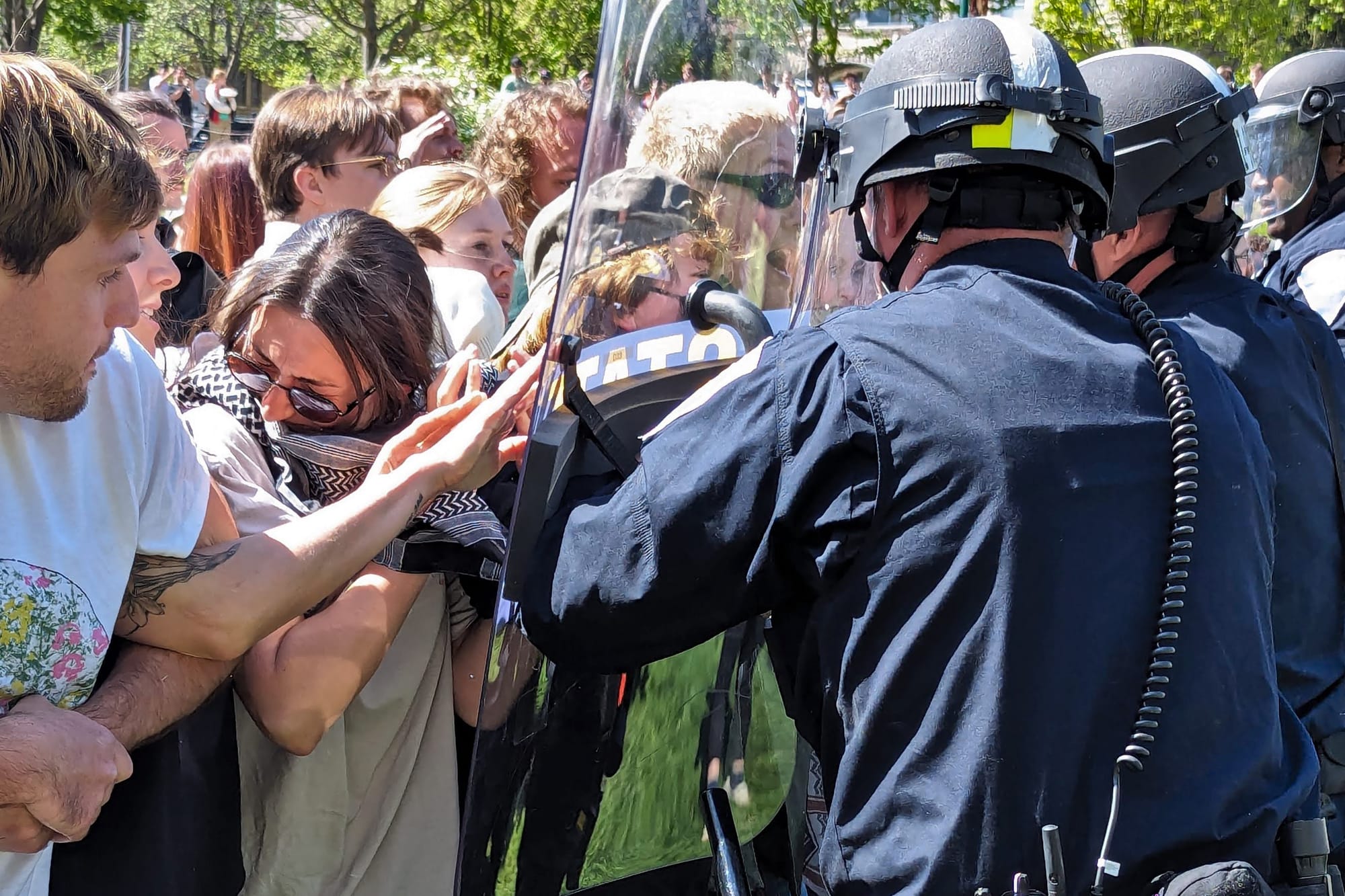
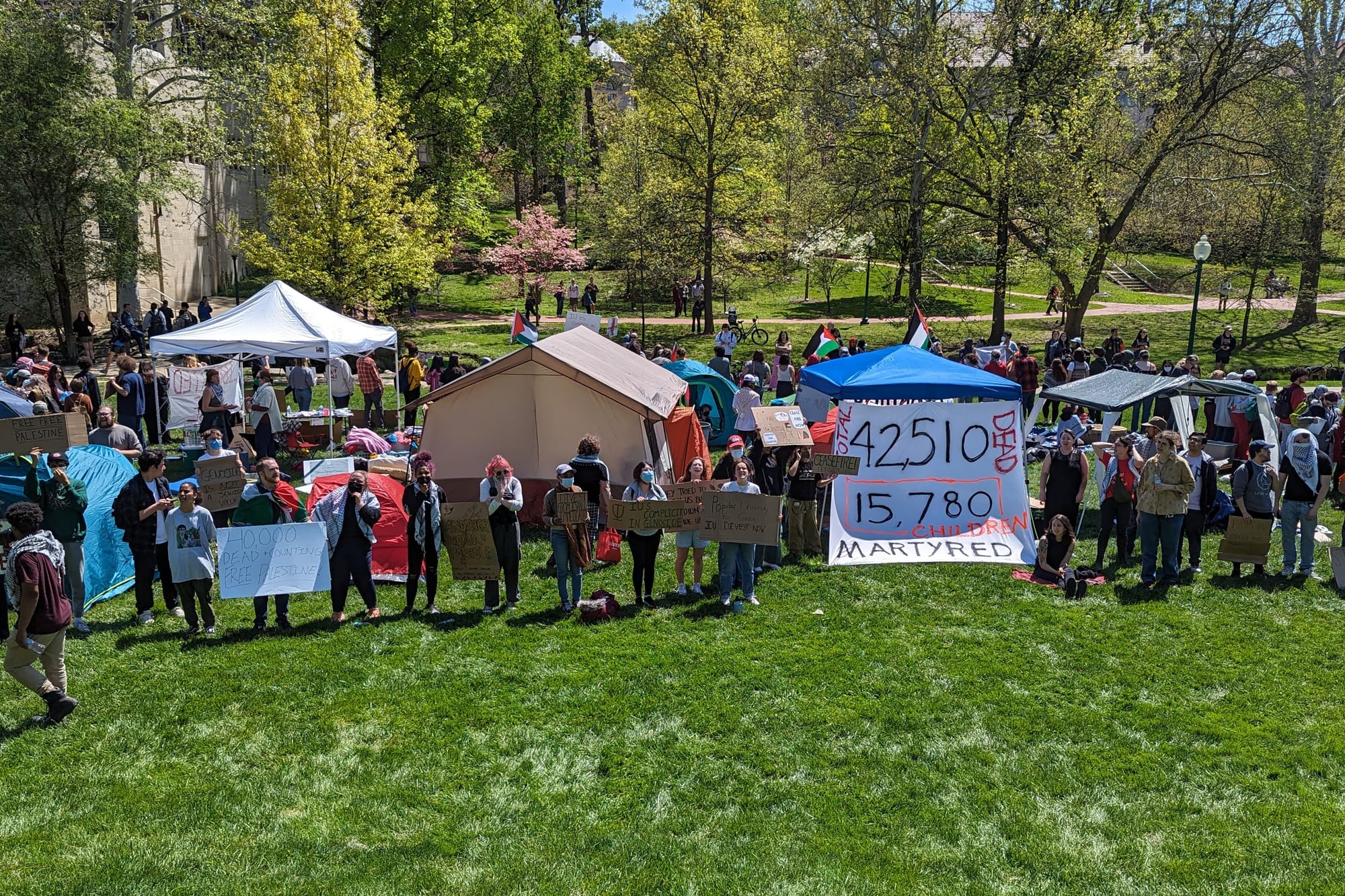
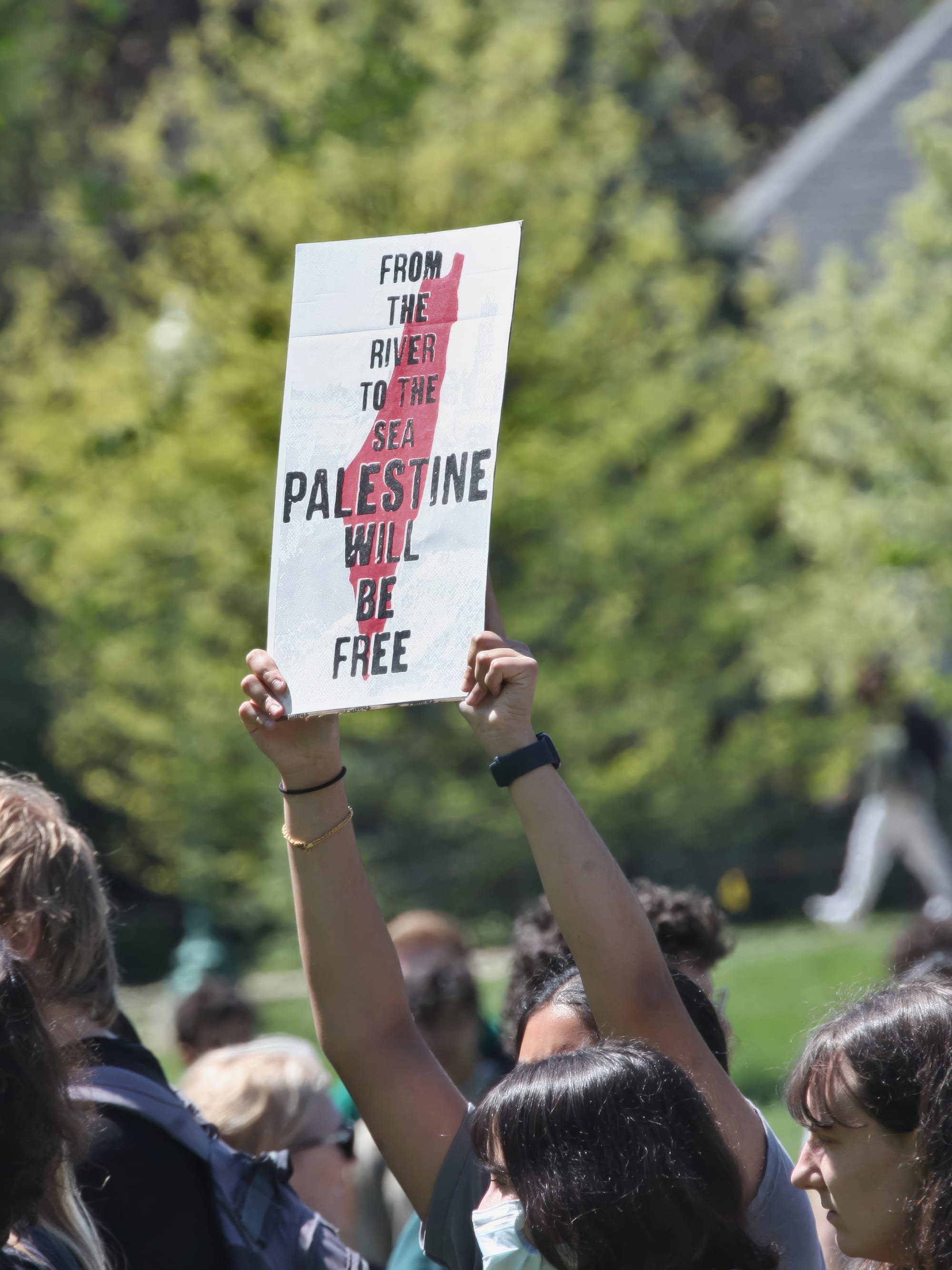
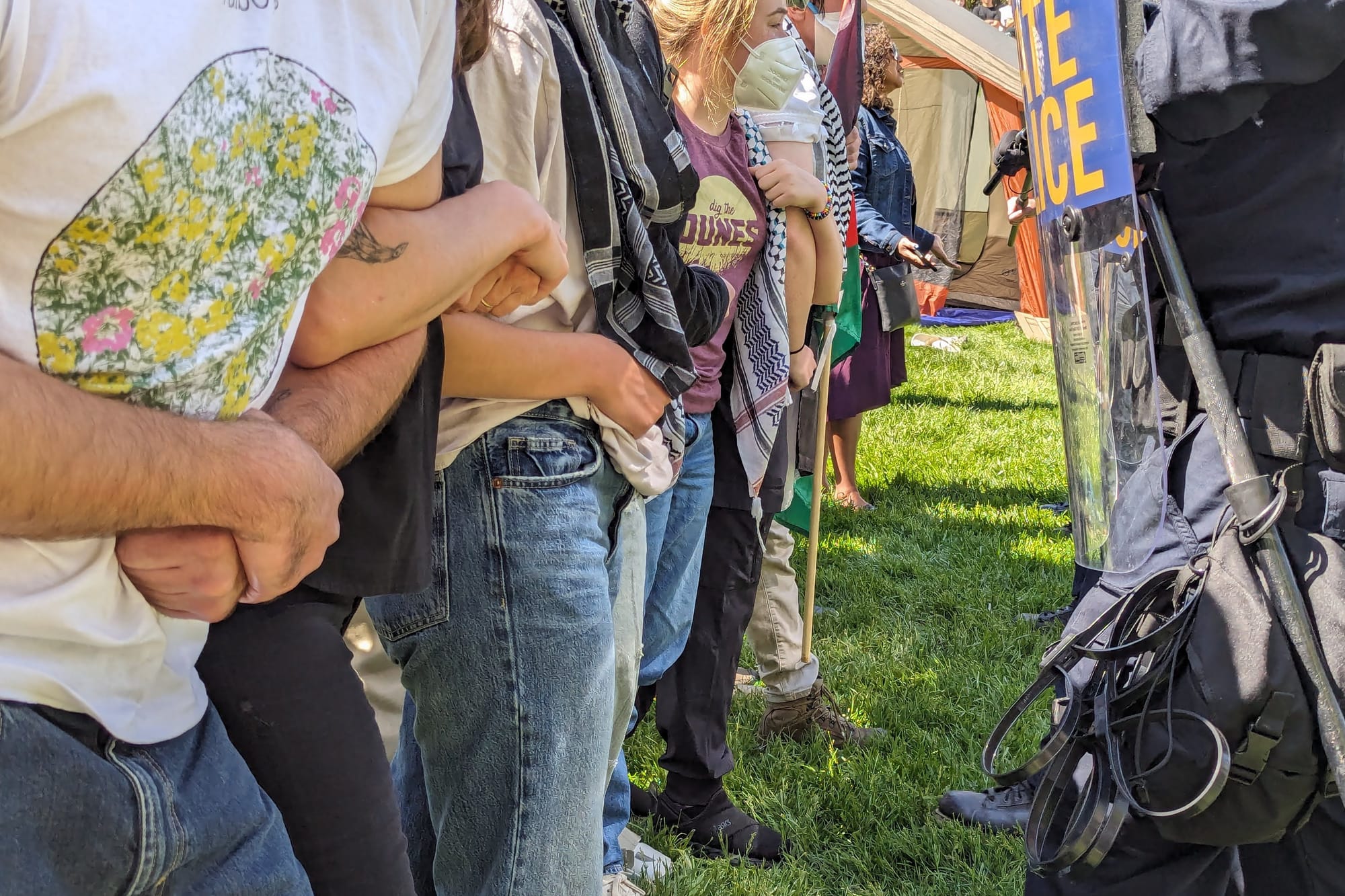
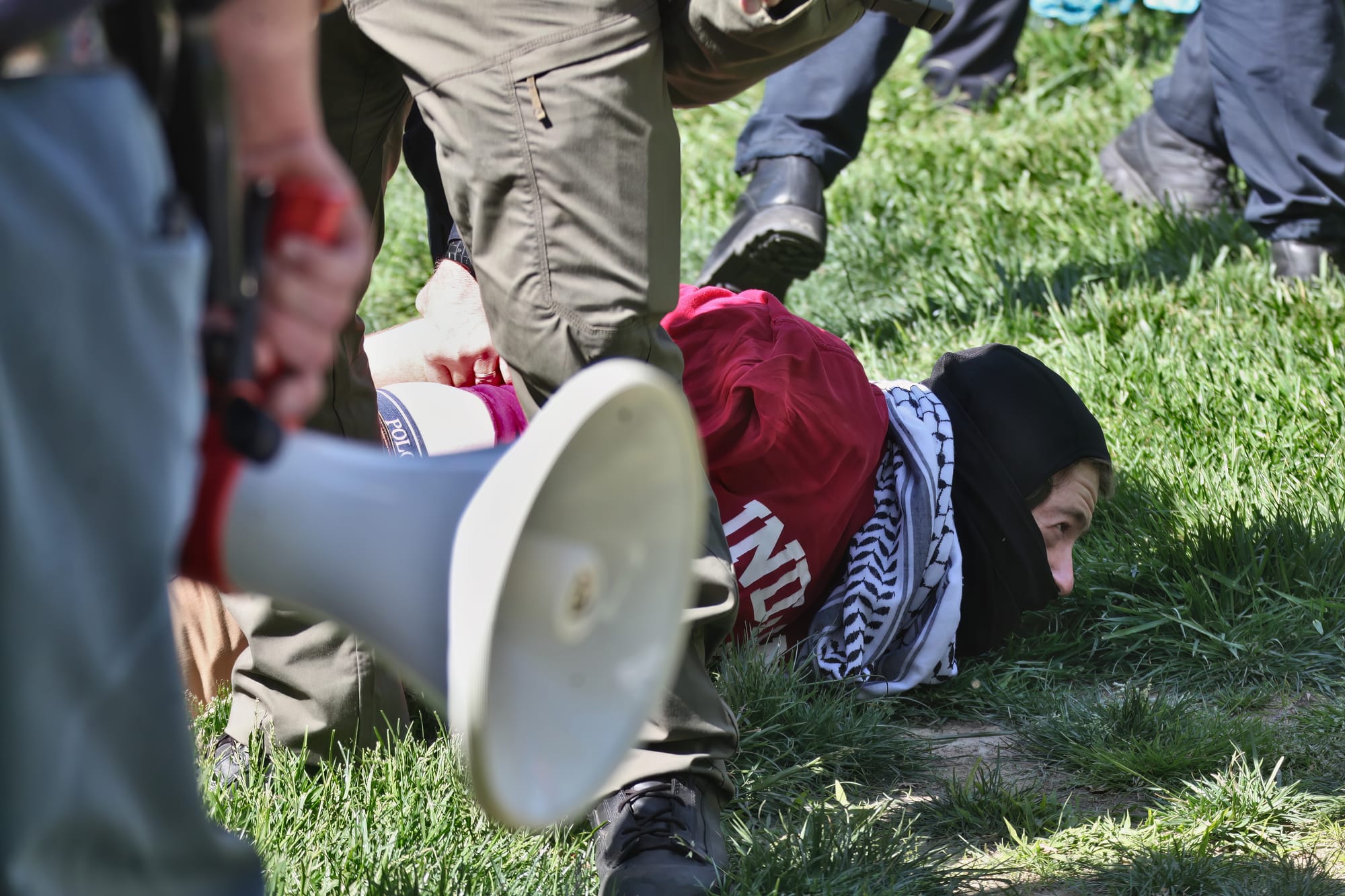
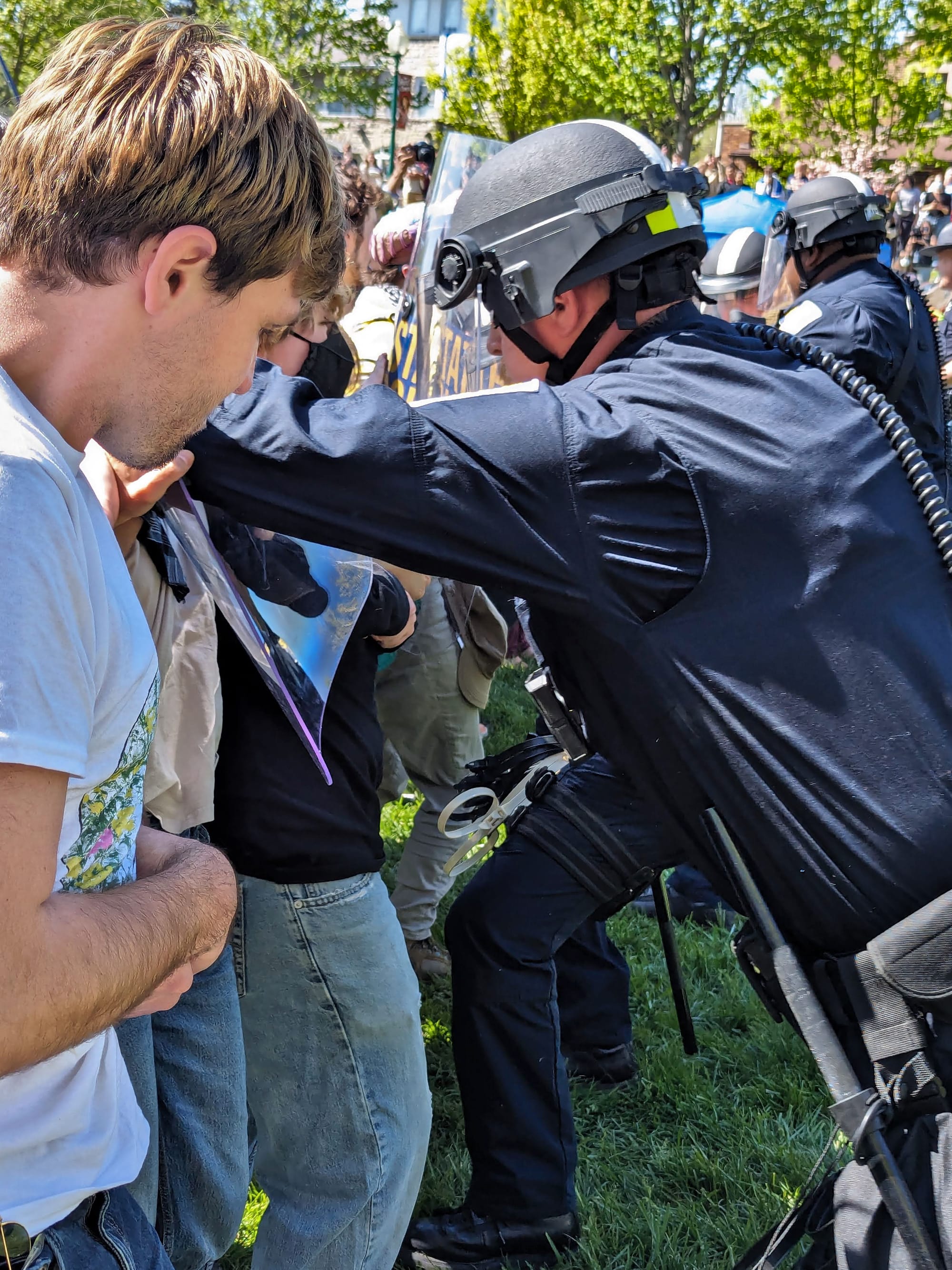
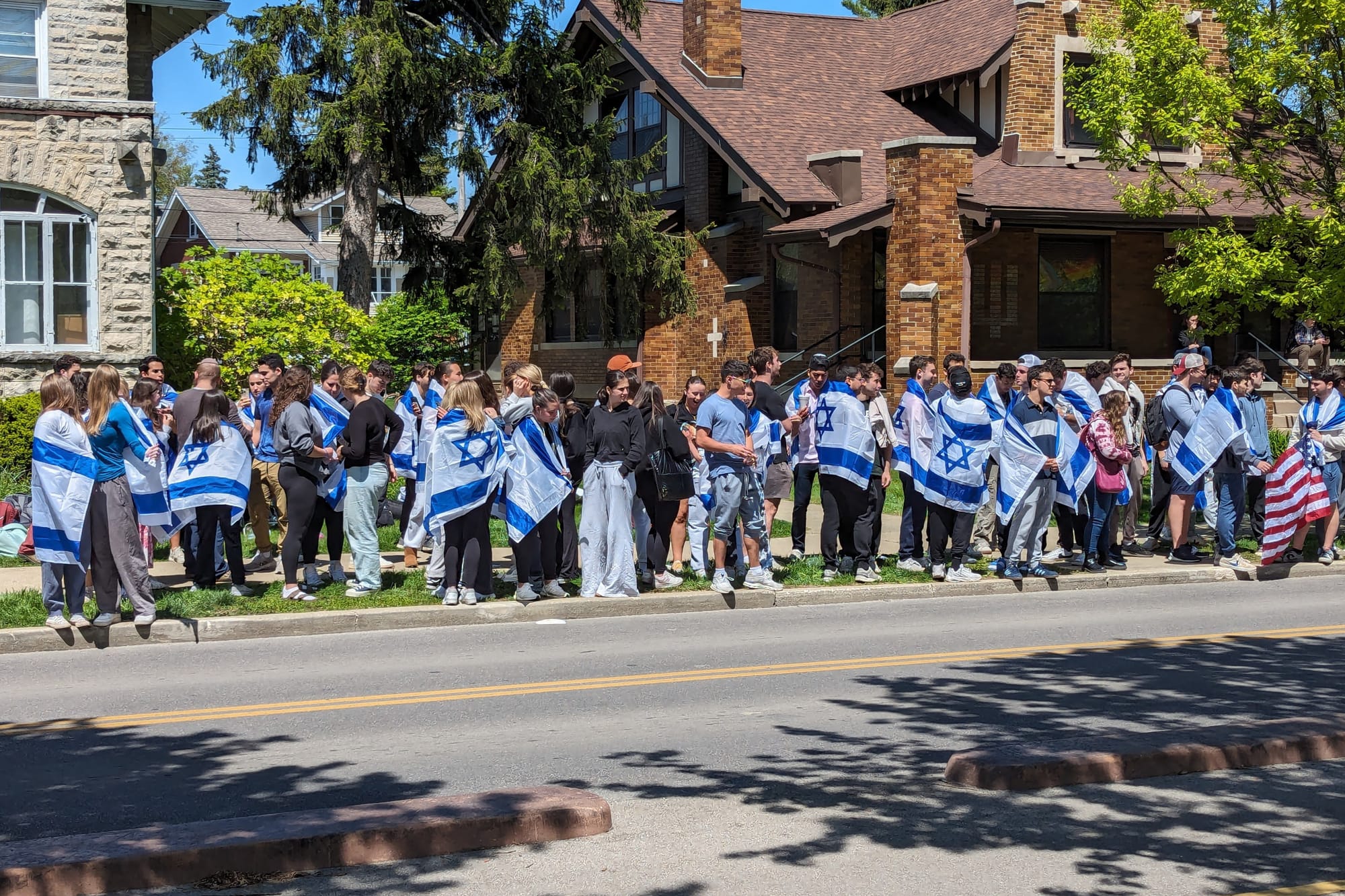
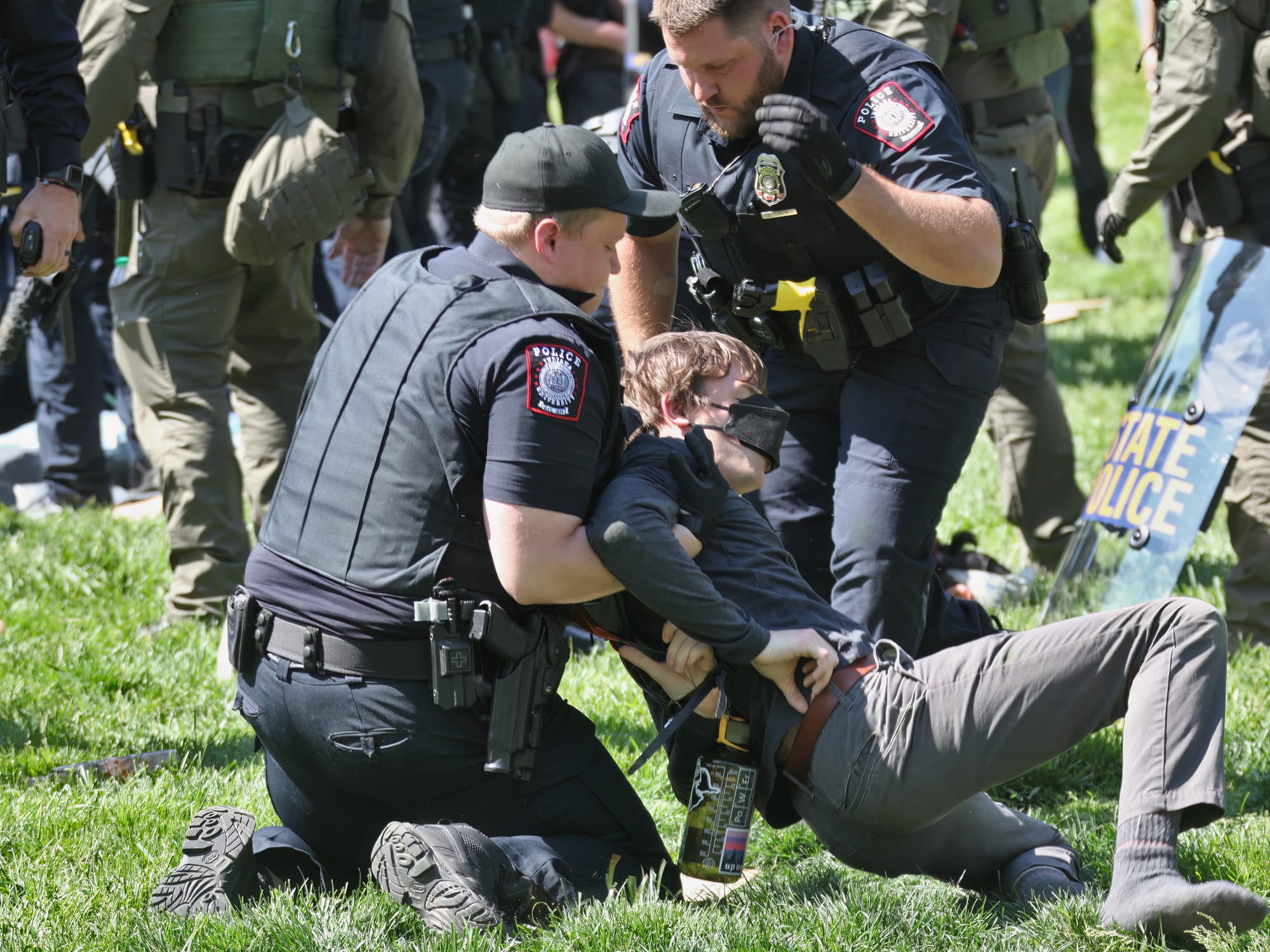
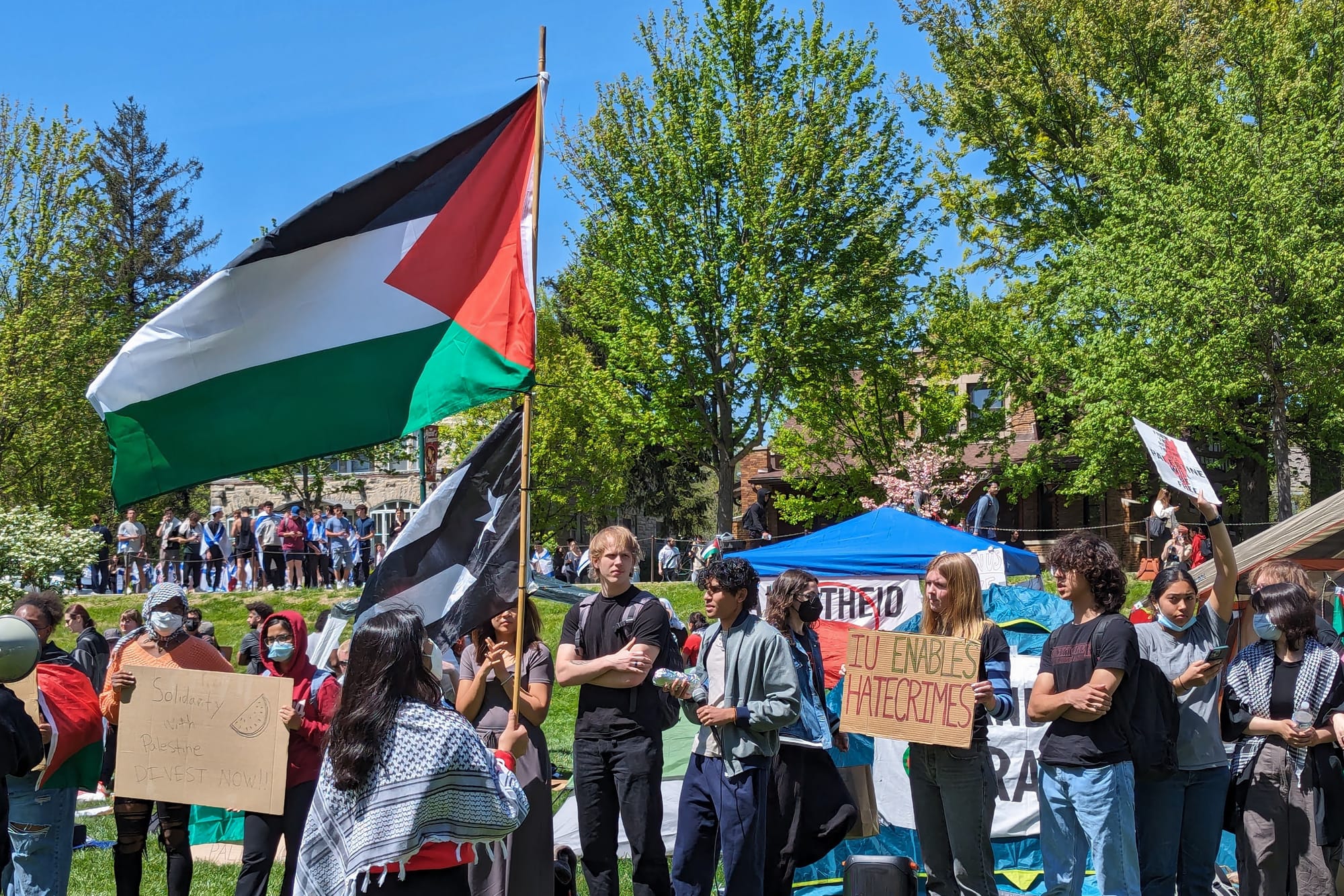
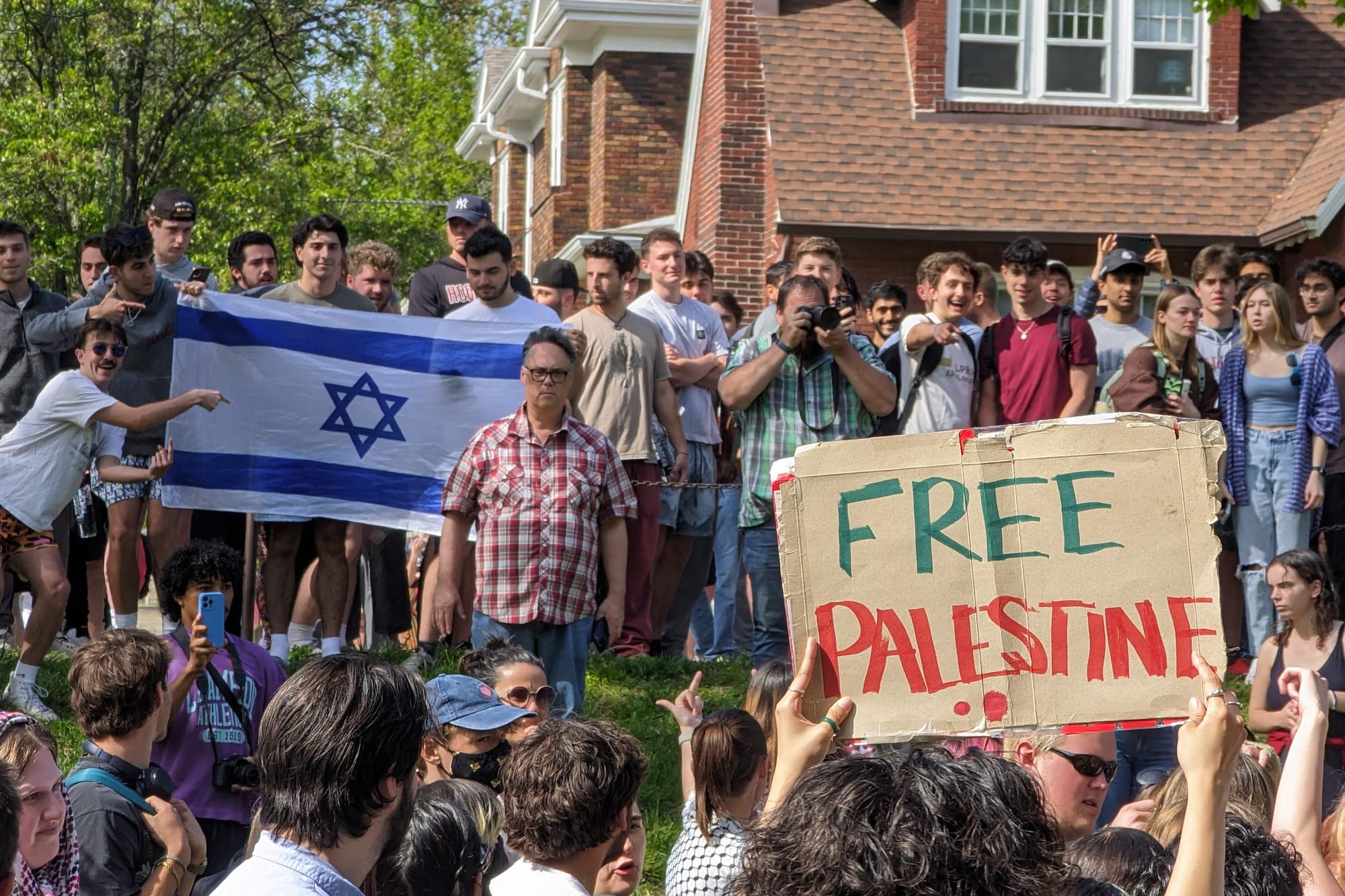
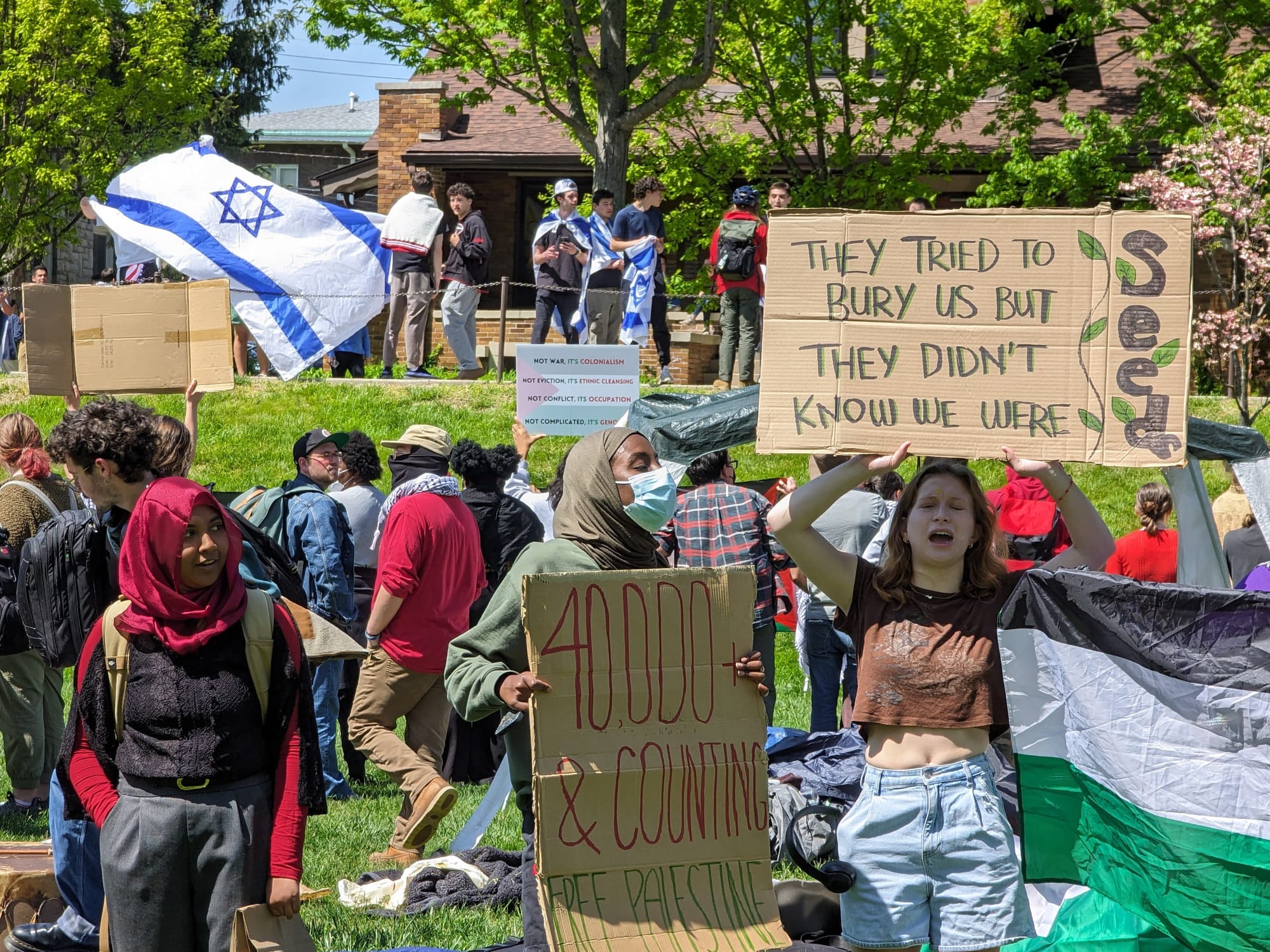
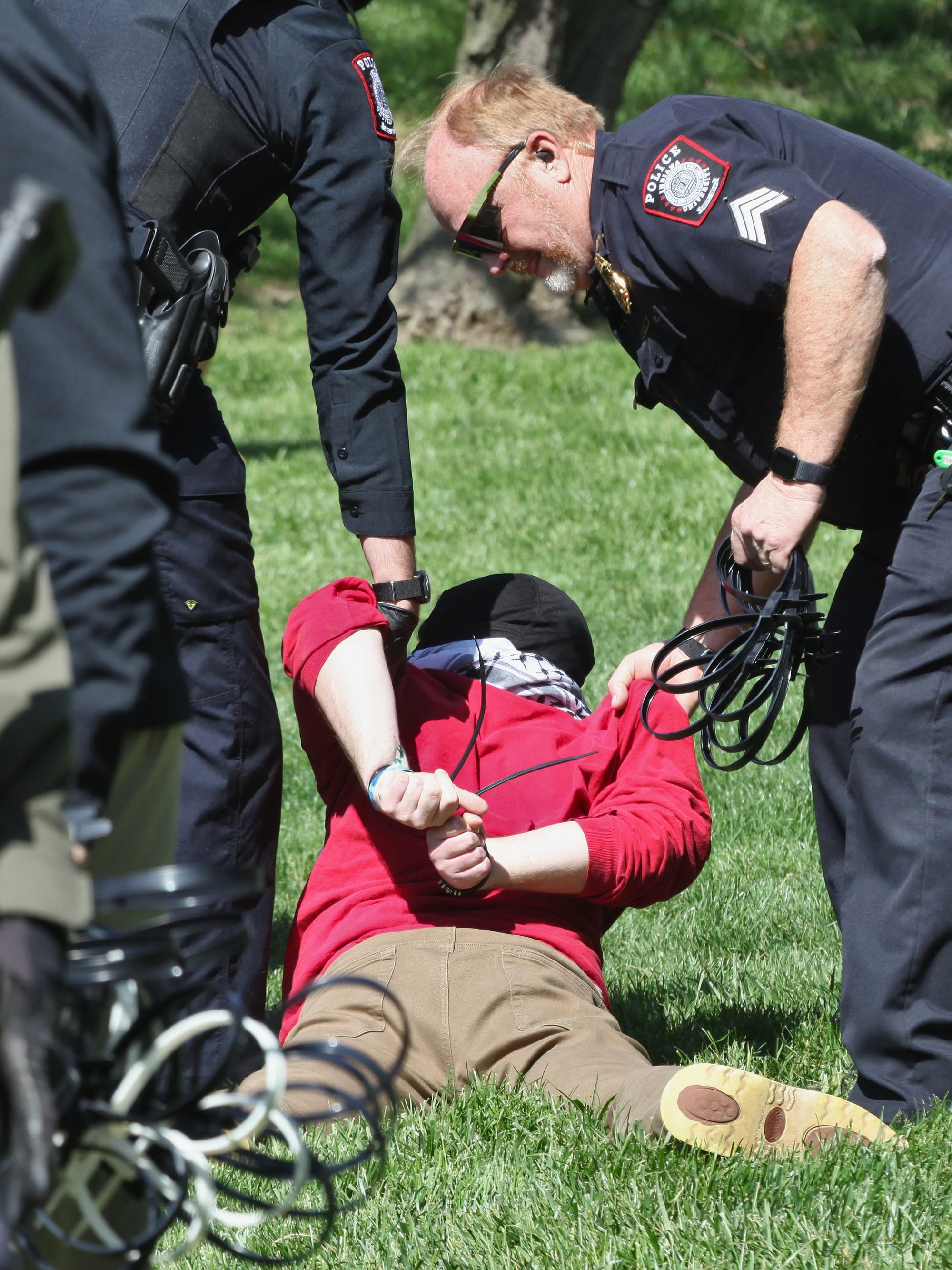
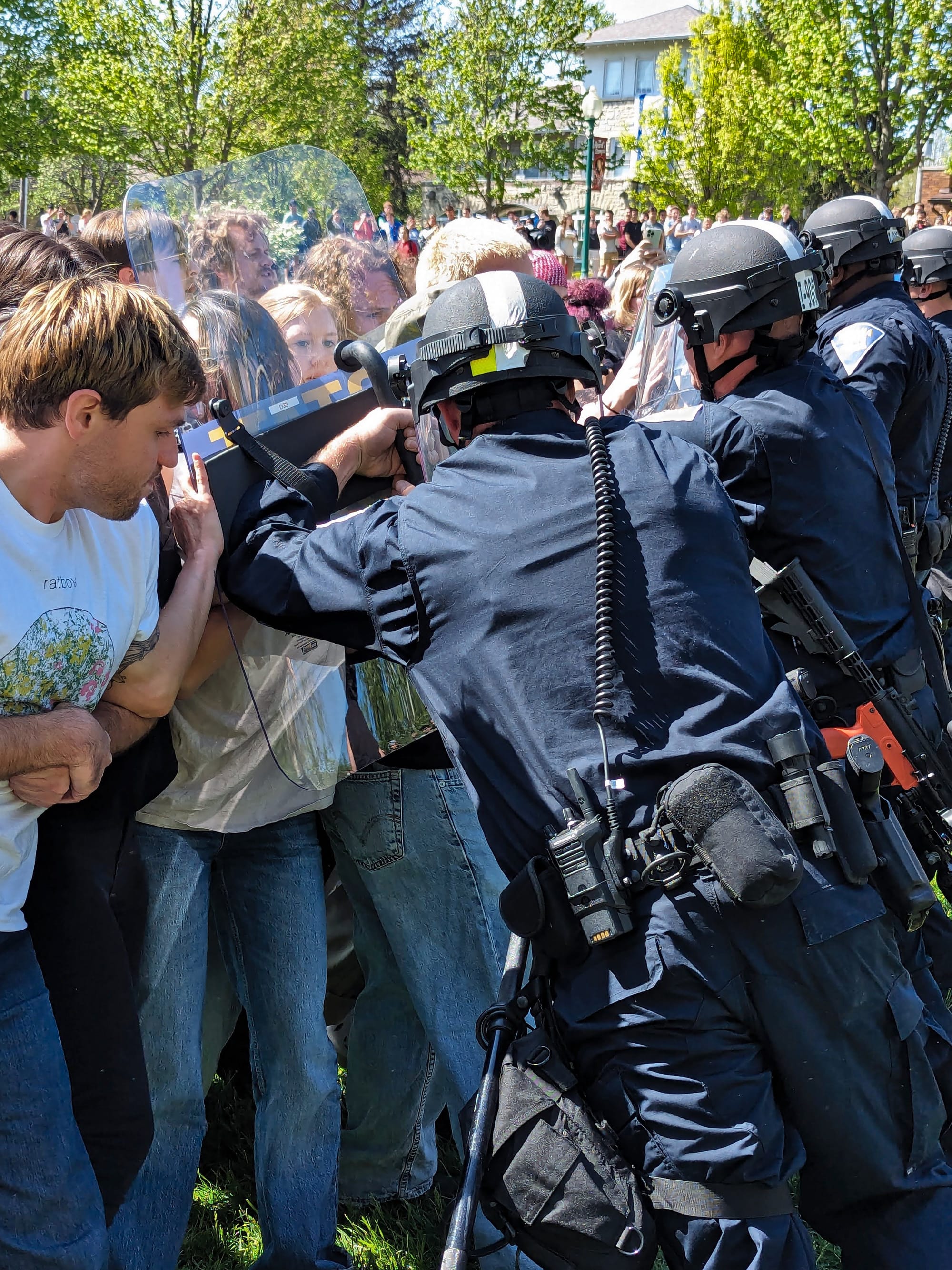
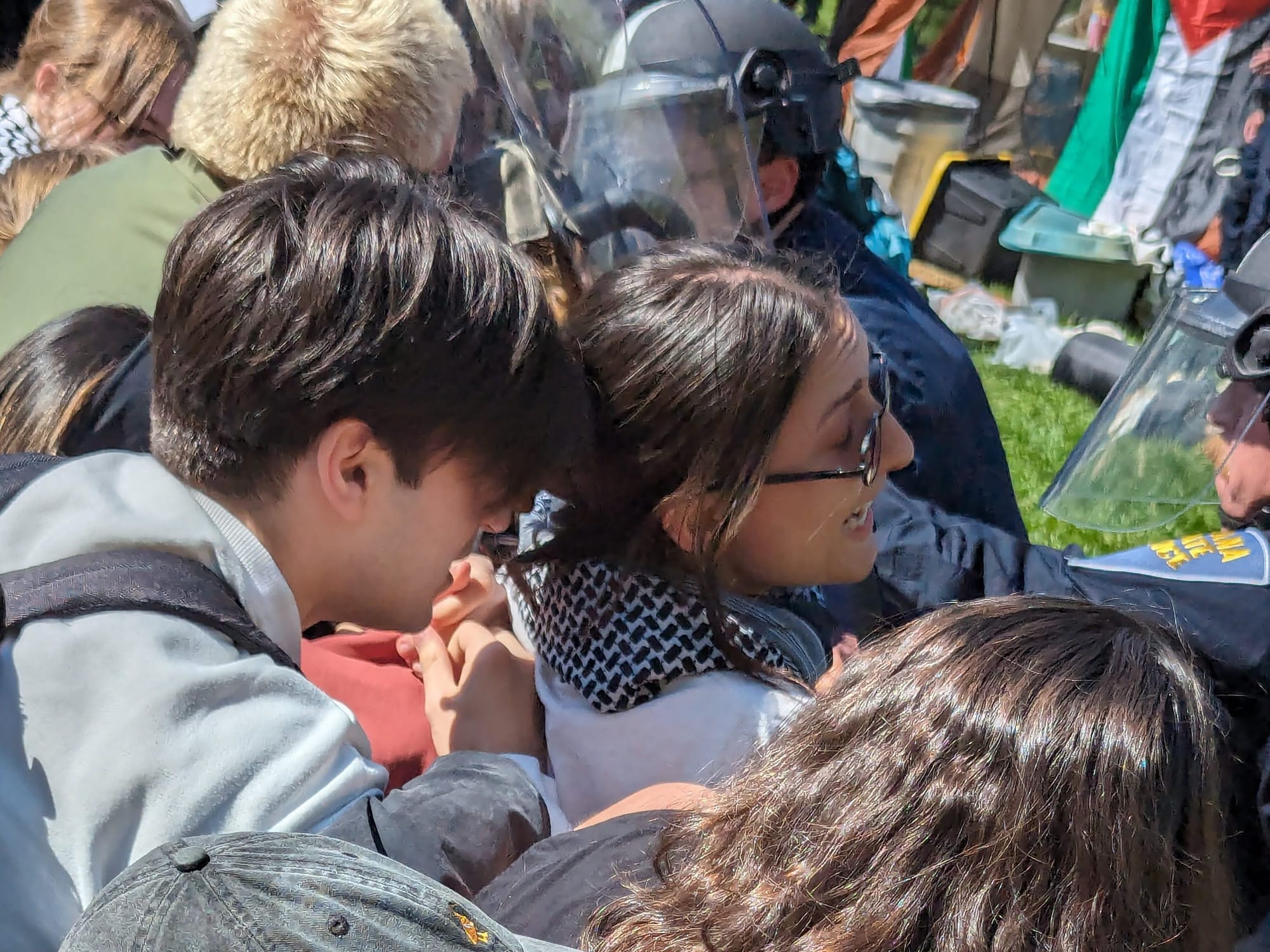
Around mid-morning on Thursday, the Indiana University Divestment Coalition set up an encampment in Dunn Meadow on Indiana University’s Bloomington campus, to protest the killing of civilians in Gaza by the Israeli army and the humanitarian crisis there.
The encampment was set up in the meadow to the southeast of the intersection of Fess Avenue and 7th Street, across from the Chabad House, a Jewish community center for the campus.
The activities of the demonstrators included call and response chants led with a bullhorn, playing music, and drumming.
There was an occasional counterpoint from the Chabat House in the form of music amplified by a boom box. Standing on the grounds of the Chabad House, or along the sidewalk, were at least 50 people, with Israeli flags draped around their shoulders. Some held signs that read “Bring them home!” a reference to the hostages taken by Hamas in their Oct. 7 attack.
By around 4:40 p.m, the coordinated effort of law enforcement agencies had resulted in the arrest of several Dunn Meadow demonstrators. The Monroe County jail Thursday morning book-in reports showed 33 people who were booked in on charges of criminal trespass.
The B Square counted at least 11 people who were at some point pulled out of the protest line, tackled to the ground, zip-tied, and made to sit or kneel in the meadow opposite North Park Avenue, awaiting transport.
During the course of the on-the-ground police action, which took around an hour, starting around 3:45 p.m., roughly a dozen tents and awnings were dismantled by law enforcement officers.
Around 2:45 p.m. a Bloomington police cruiser pulled into position to block Indiana Avenue at Kirkwood so that no cars could drive past Dunn Meadow. A little later, side streets were blocked to prevent cars from entering Indiana Avenue from the west. A state police helicopter circled overhead.
Around 3:45 p.m. Indiana state police in riot gear—helmets with clear face masks and hand-held shields—arrived on the far east side of the meadow. A couple of hours before that, Indiana University police officers had told protestors through bullhorns that they had to take down the tents or face arrest.
The line of state troopers in riot gear were backed by state police personnel in military-style fatigues, some armed with less-lethal type weapons, like airguns with pepper-spray balls.
Until state police arrived on the scene, demonstrators had encircled their encampment to defend it on all sides. When state police arrived from the east in riot gear, they formed a line on the east side of the encampment.
Police wanted to dismantle the tents, so they told the demonstrators to move back or face arrest.
State troopers did not try to make one big rush to get at the tents. Police would periodically push forward together, shoving against the line of demonstrators with shields and batons. Demonstrators, who had linked arms and were standing maybe three or four people deep, sometimes held firm, shoved back, or gave up some incremental ground.
It was during the periodic concerted pushes that some of the arrests were made, as police would extract one or two people from the line, during the rough shoving back and forth.
The university administration appears to have been enforcing a policy that was set forth on campaign-yard-sign-style posters that had been placed around Dunn Meadow: “No unapproved temporary or permanent structures are permitted, including but not limited to tents.”
After the police action, B Square spoke with Micol Seigel, a IU professor of American studies and history, who was in Dunn Meadow on Thursday with a copy of the university’s policy for conduct on assembly grounds, which was enacted in 1969.
The 1969 policy allows for the kind of tents and awnings that were set up in Dunn Meadow on Thursday. The policy says:
Any sign, symbol or structure which is either (a) continually carried or (b) taken away from 11:00 p.m. until 6:00 a.m., may be used in the Assembly Ground, day or night, to express any point of view on any subject, with or without advance notice, within the limits of applicable laws or regulations.
Seigel told The B Square that the dean of student affairs had formulated a policy that made tents illegal in Dunn Meadow. Seigel said that new policy had not been subjected to the established procedures of shared governance. There have been encampments in Dunn Meadow meadow in years past that were not removed, she said.
The new policy appears to be specific to free speech about Palestine, Seigel said.
Also in Dunn Meadow on Thursday was IU professor of history Amrita Chakrabarti Myers, who spent much of the most tense period—when the line of riot police formed against the line of demonstrators—standing between the lines trying to talk to police officers.
Myers told The B Square that the demonstration had been peaceful until the state troopers had arrived. “It was peaceful. It was drumming, it was chanting, it was music—in order to protest the violence and genocide is happening in Gaza.”
Myers continued, “Until the state troopers arrived, there was no violence of any kind. The IU administration called state police out on their own students, their own staff and their own faculty!”
Myers said, “We not only have a First Amendment right to be here, to stay on a public campus, paid for with taxpayer dollars, and … the students pay fees to go to school here.” Meyers noted that Vietnam protests, and anti-apartheid protests have taken place in Dunn Meadow.
Myers described the police officers in full riot gear: “They were pushing us not only with their guns but with batons. And it was incredibly, incredibly scary. And it was violent, and it was completely unnecessary.”
What was Myers saying to the police officers? “I kept telling them: There was no violence until you showed up and you don’t have to be here!”
The police had told her that the tents were a security risk. About the contents of the tents, Myers said, “There’s water and food and pizza and supplies because it’s a hot day!” The police had told her she had to talk to the administration about it, because it was the administration who had called in the police.
About the apparently scrapped 1969 policy, IU professor of labor studies Joe Varga told The B Square: “We no longer have rule of law. We no longer have IU policy. We’ve got motherfuckers with guns. And that’s all there is to it.”
Also in Dunn Meadow on Thursday was Bill Breeden, a retired Unitarian Universalist minister, who recalled for The B Square the occupation of Dunn Meadow in the lead up to the Gulf War in the early 1990s. “We occupied this meadow—it was the largest encampment in the United States,” Breeden said.
Photos: Dunn Meadow April 26, 2024

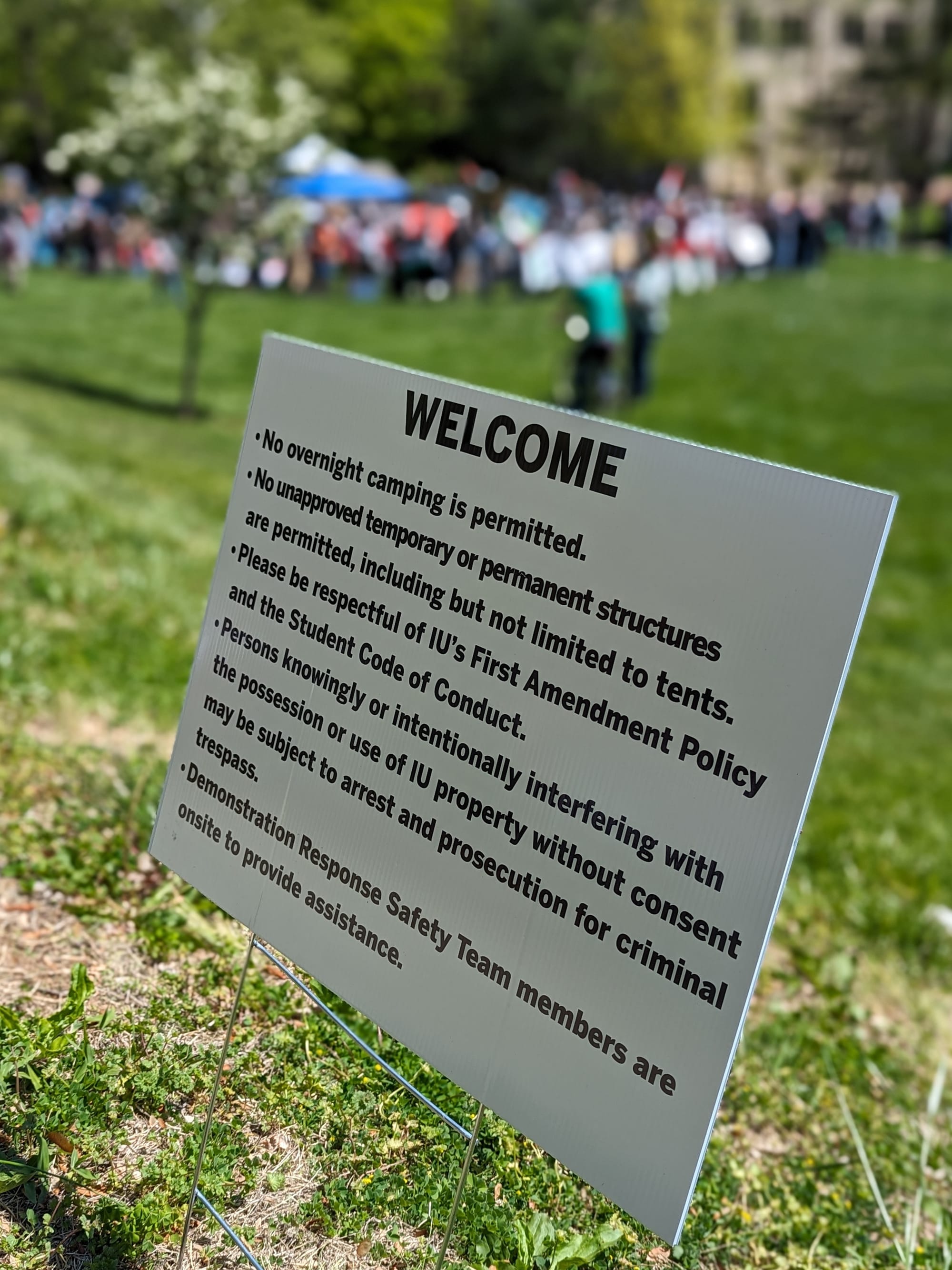


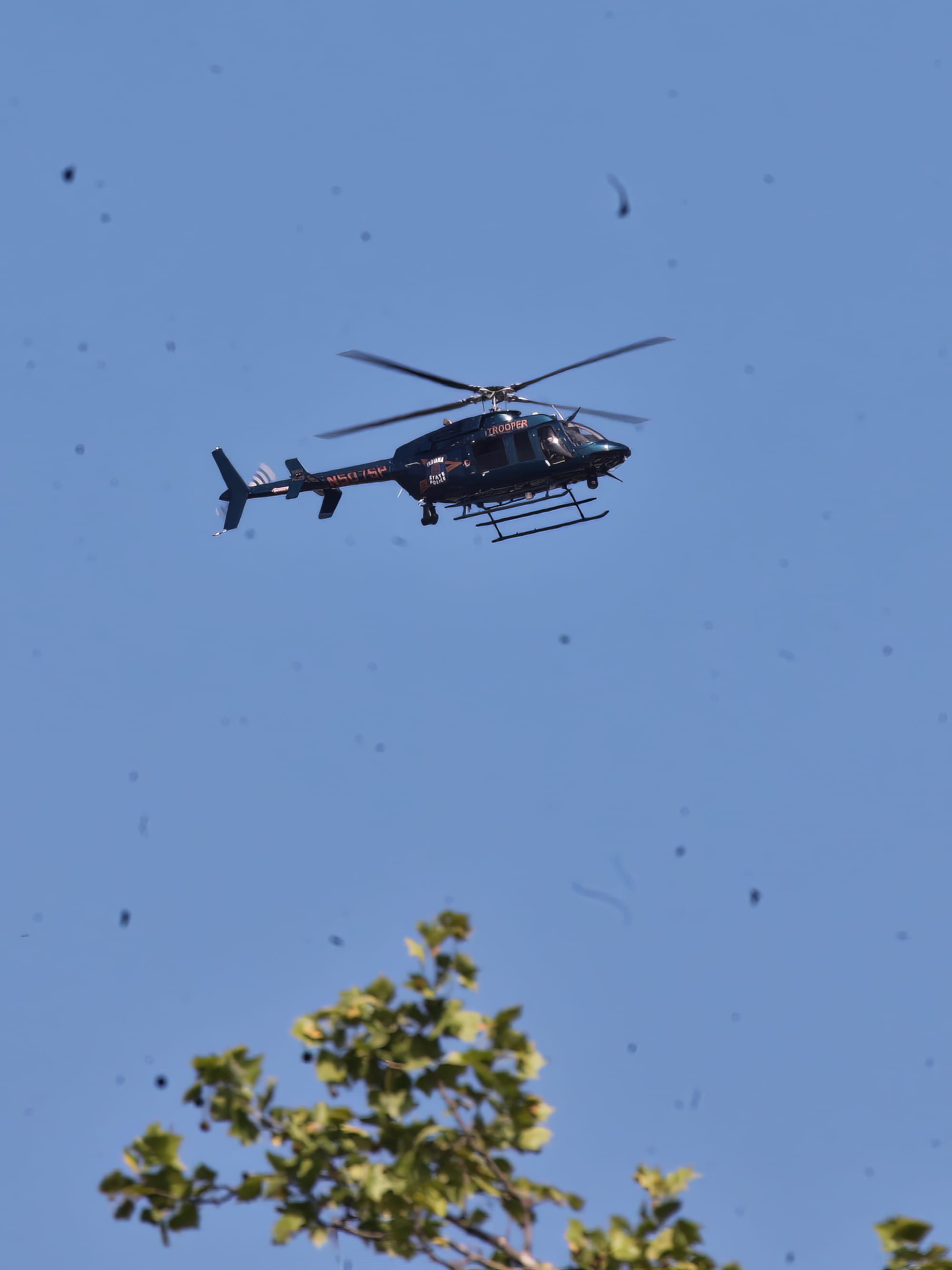

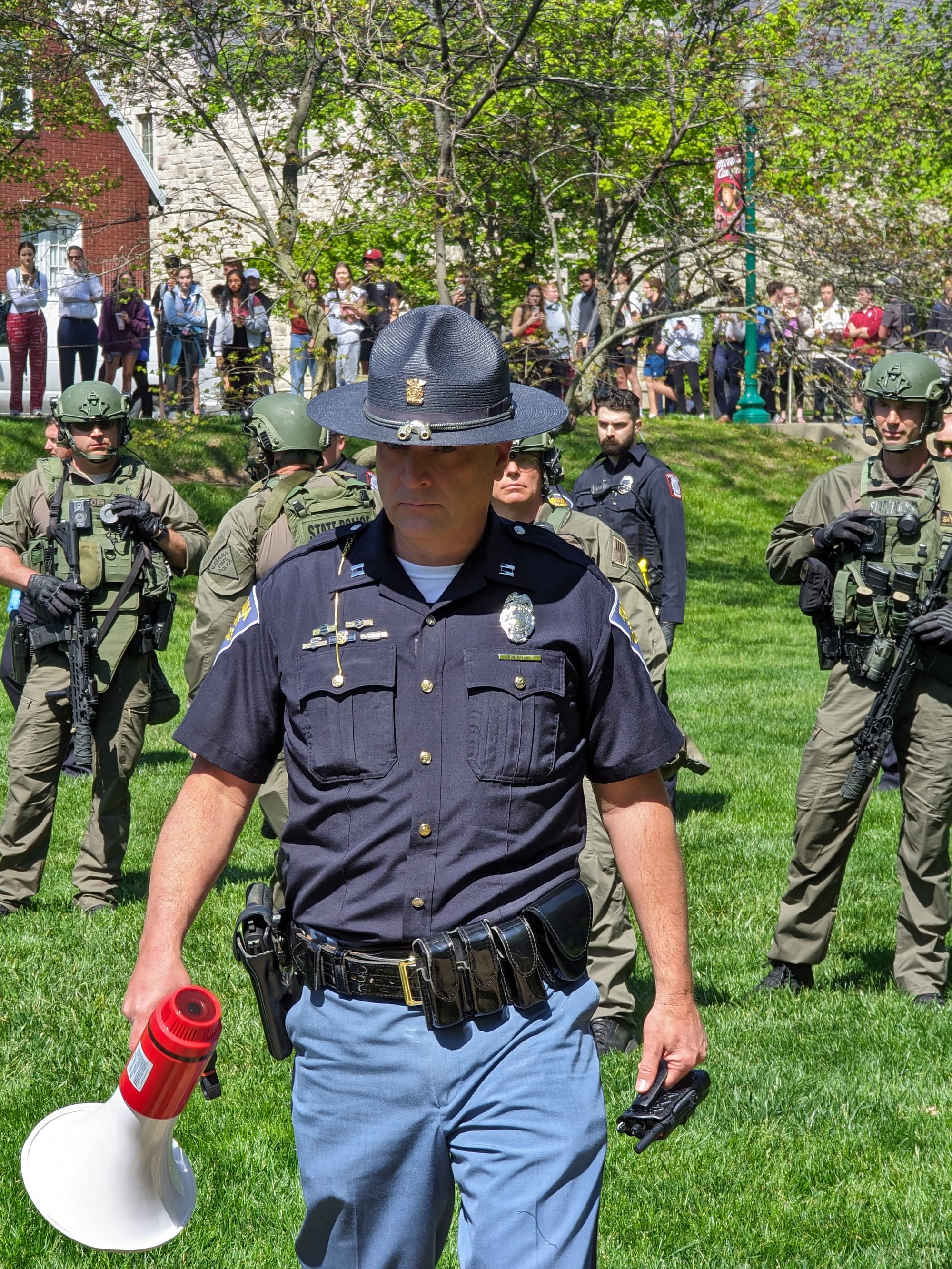
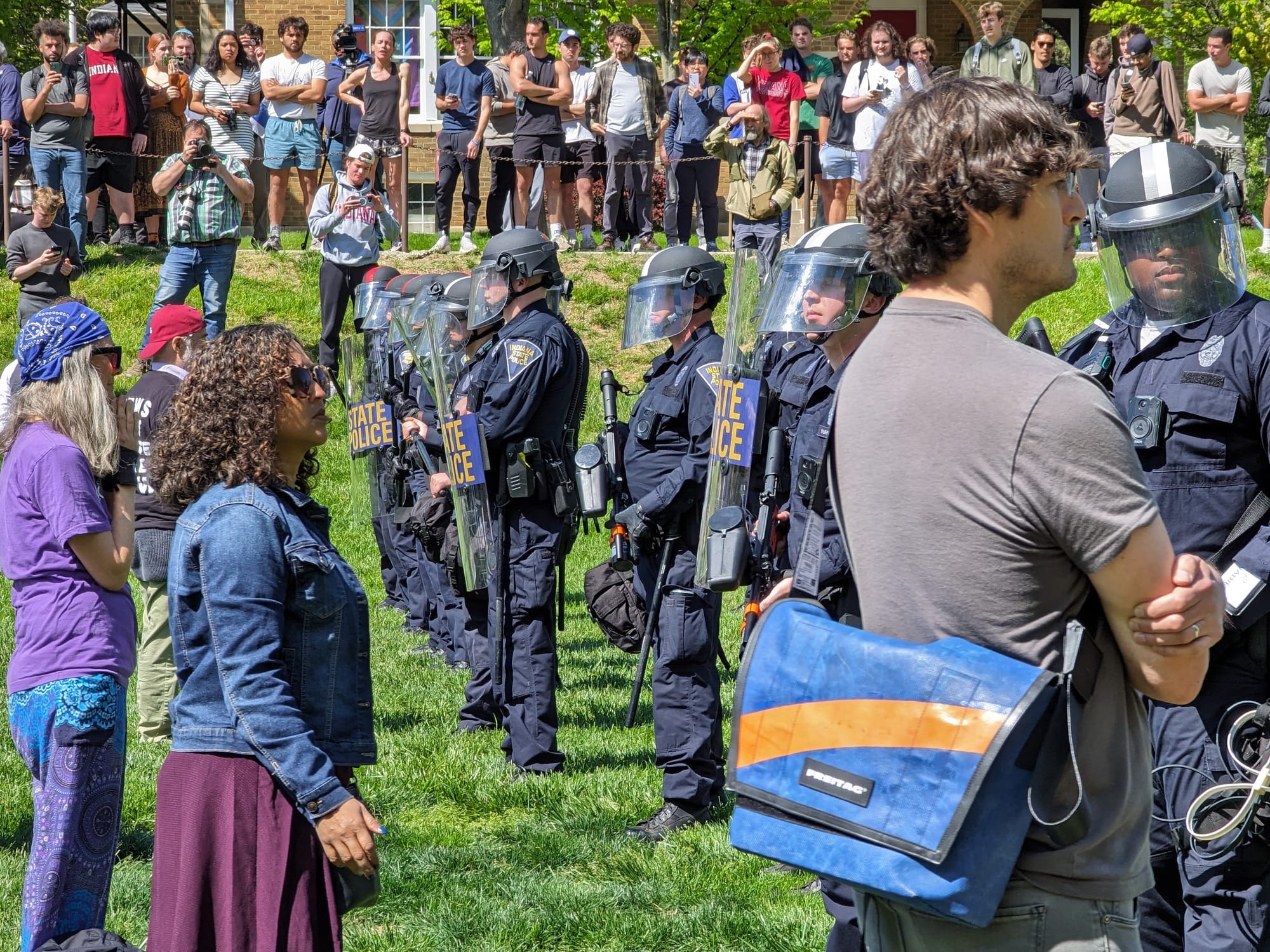
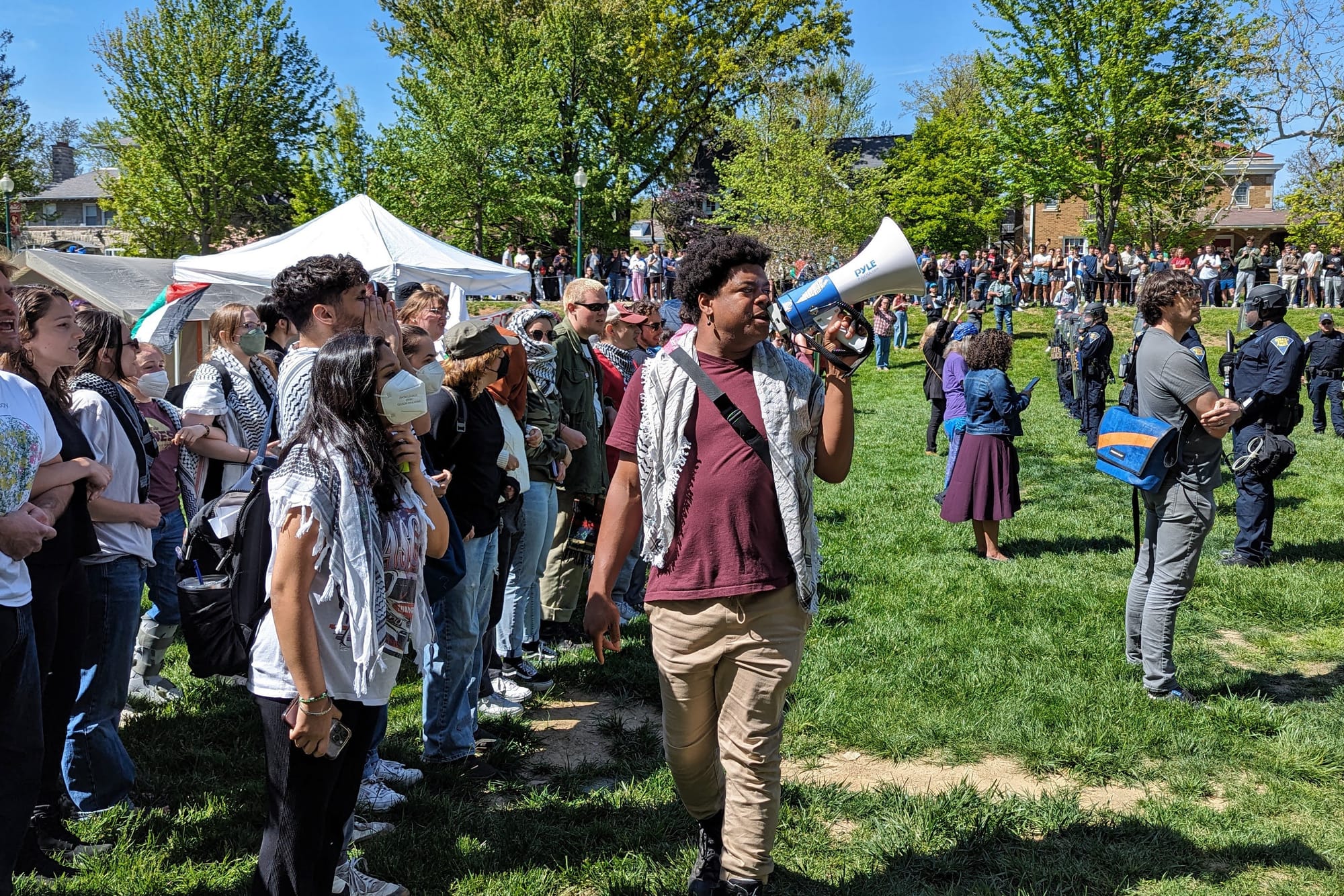
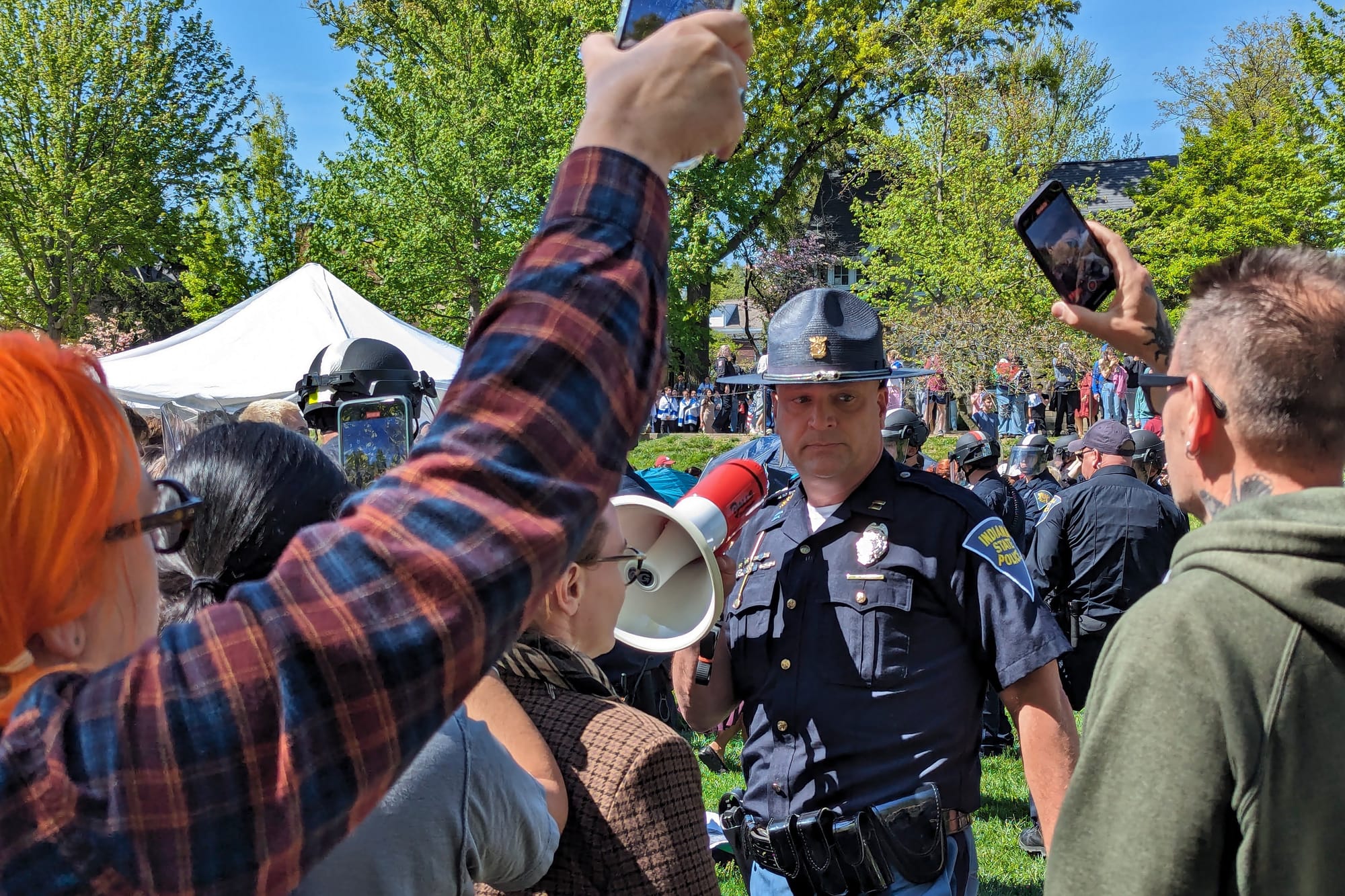
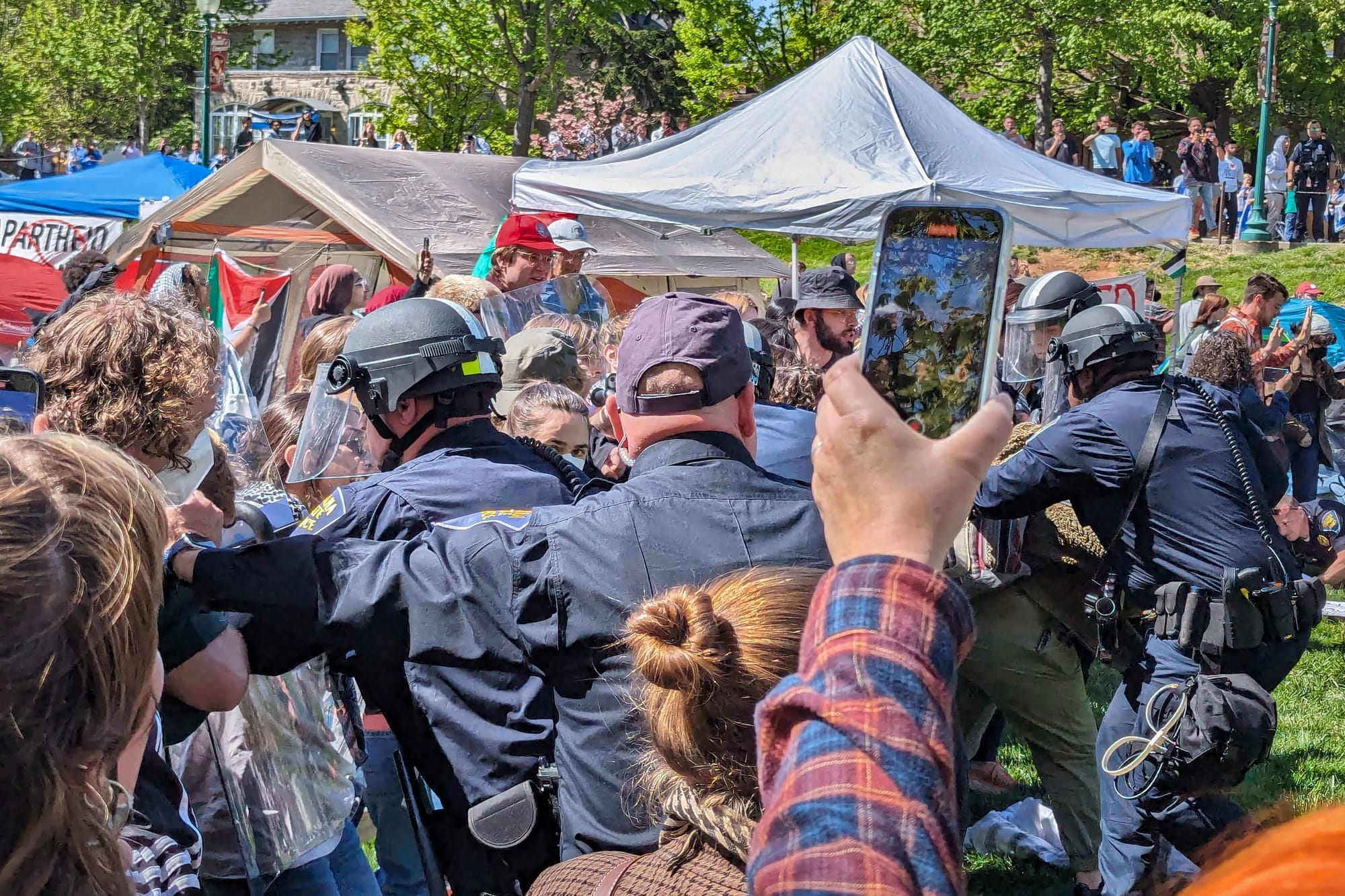
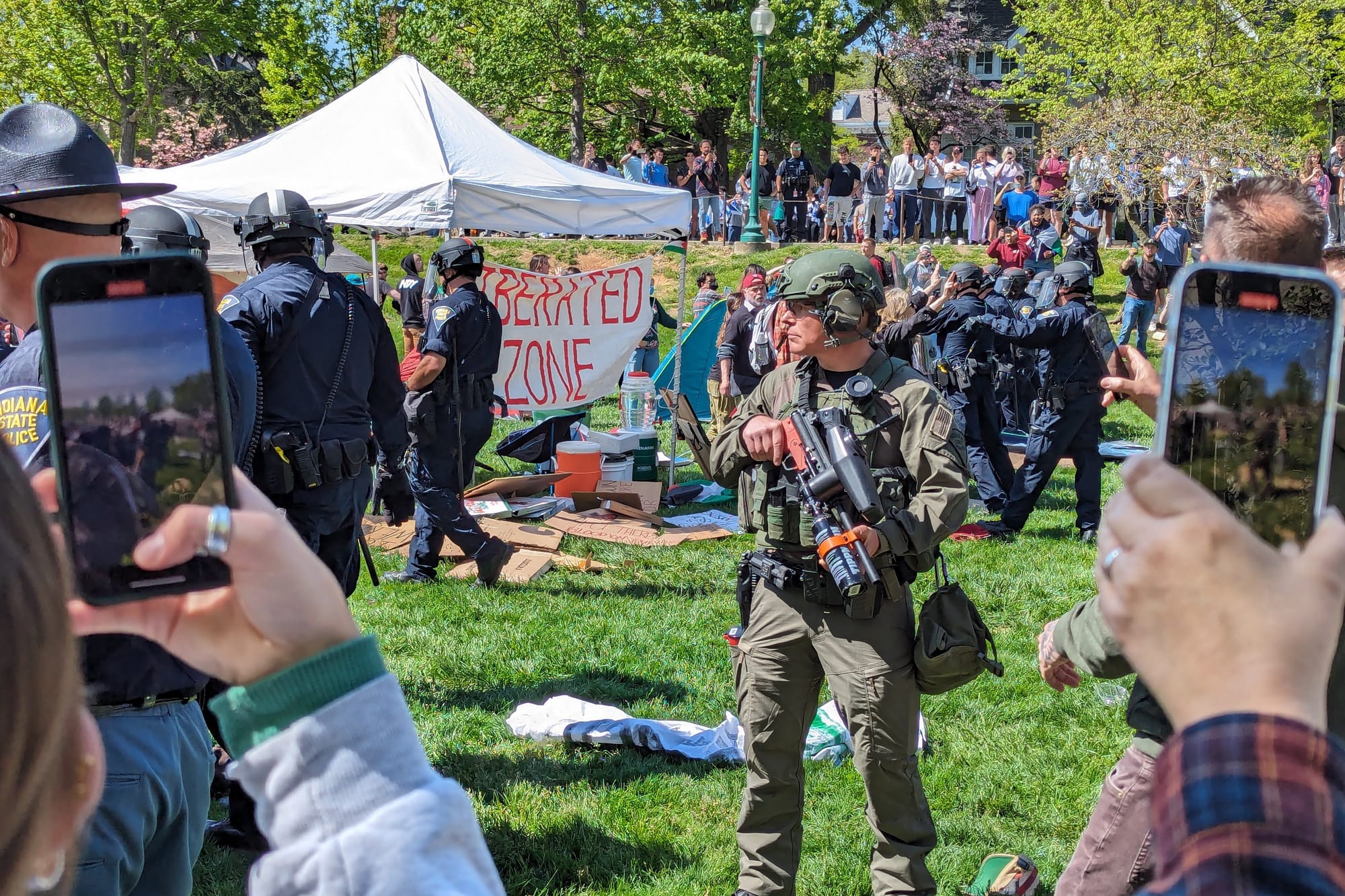
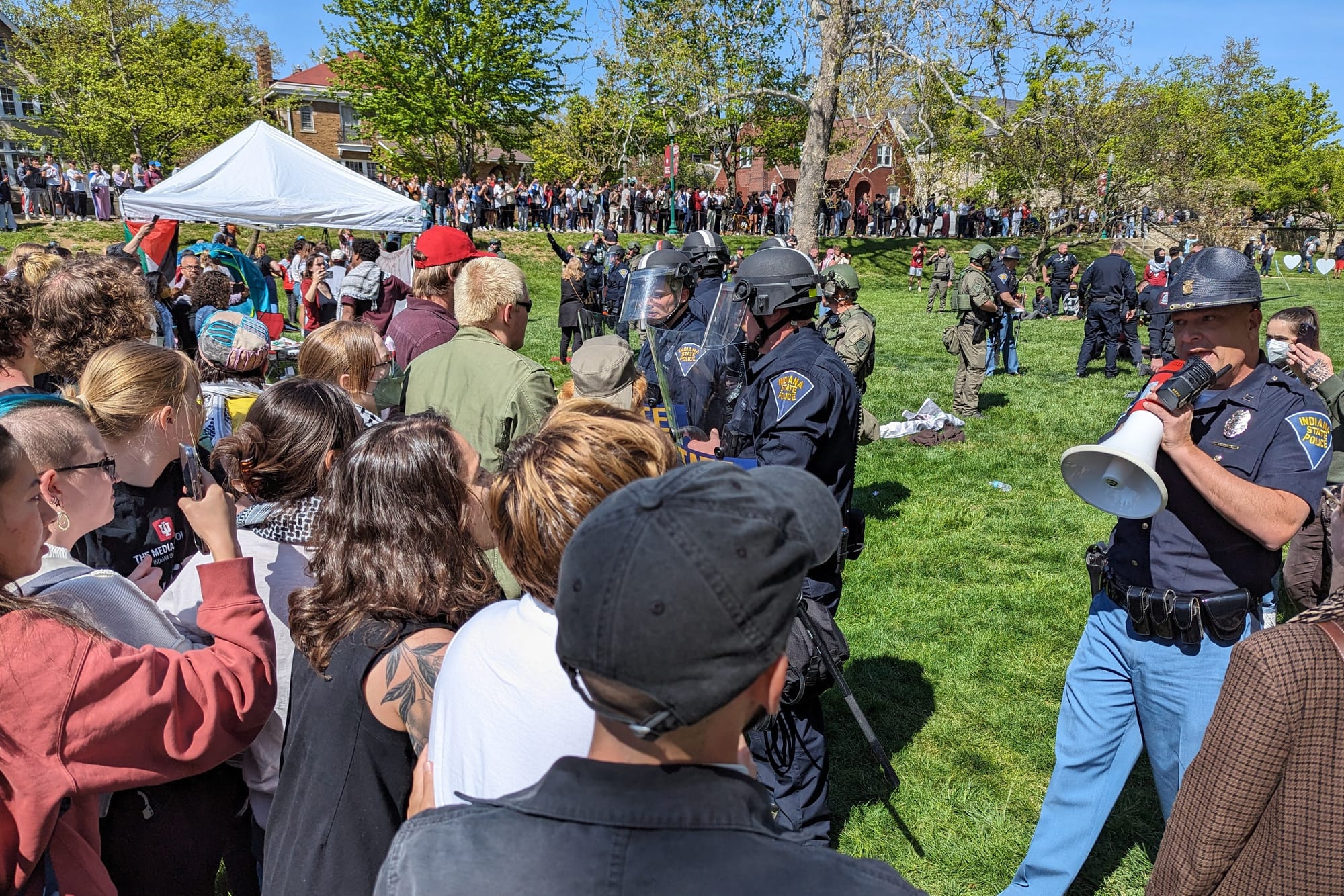
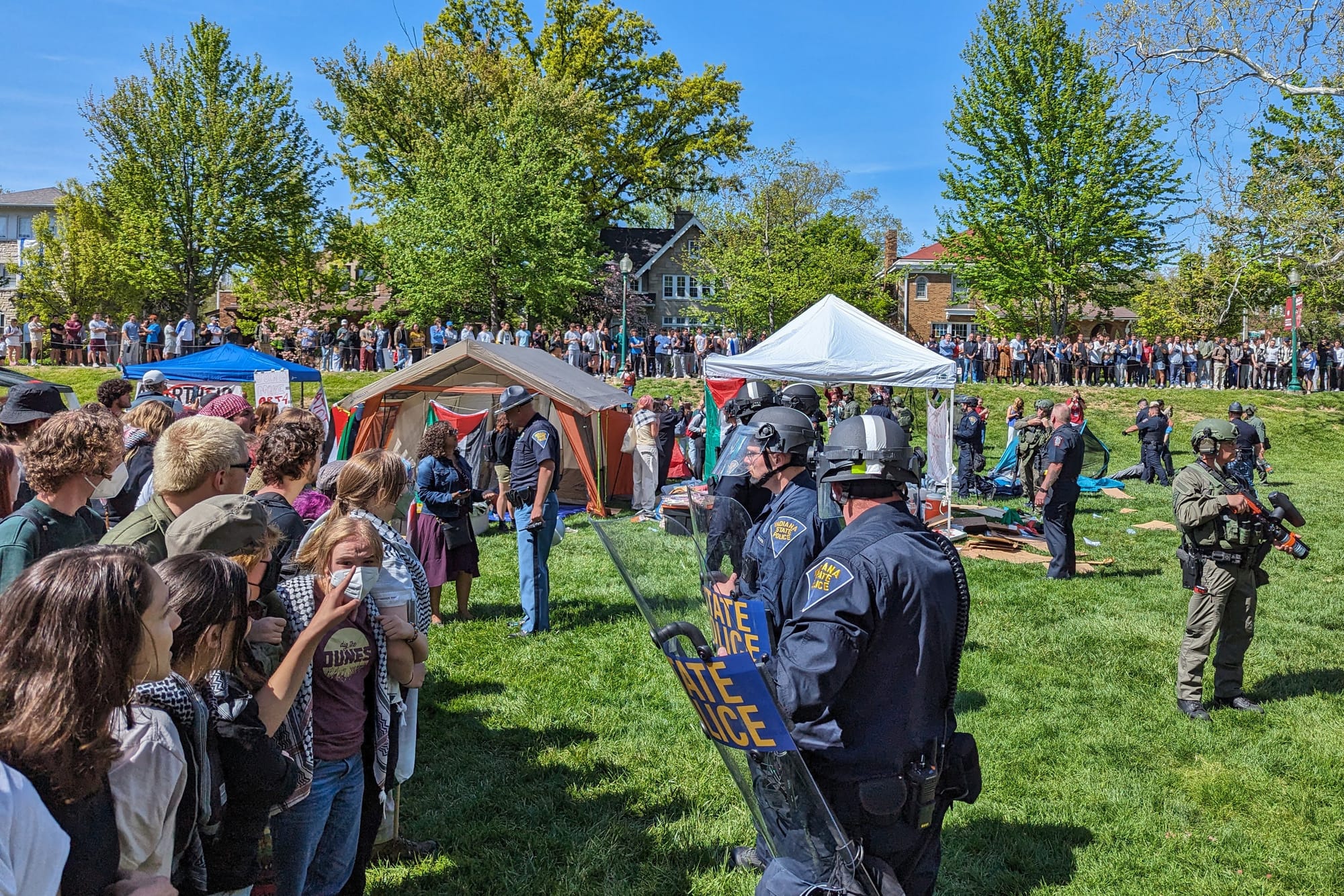


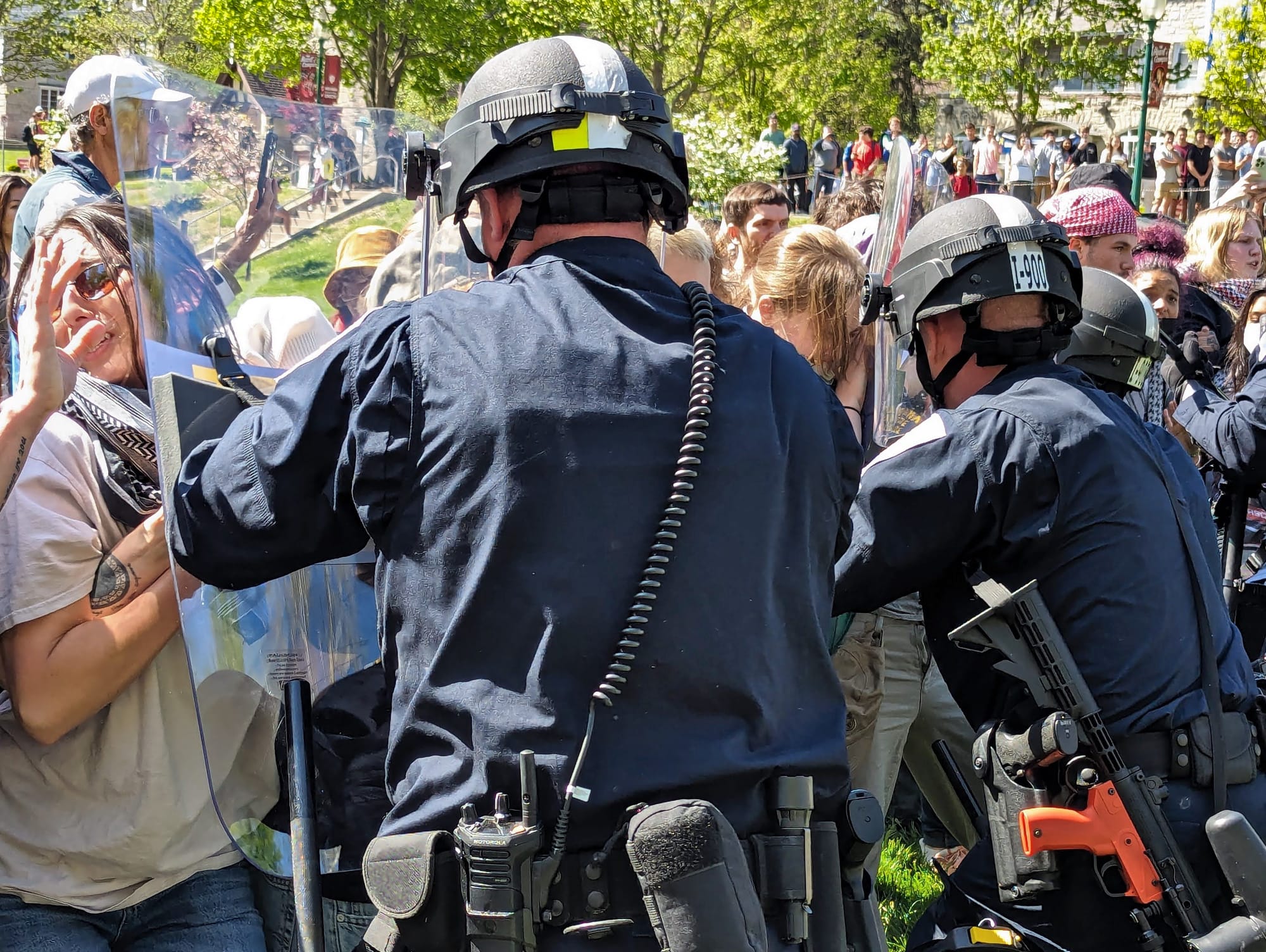
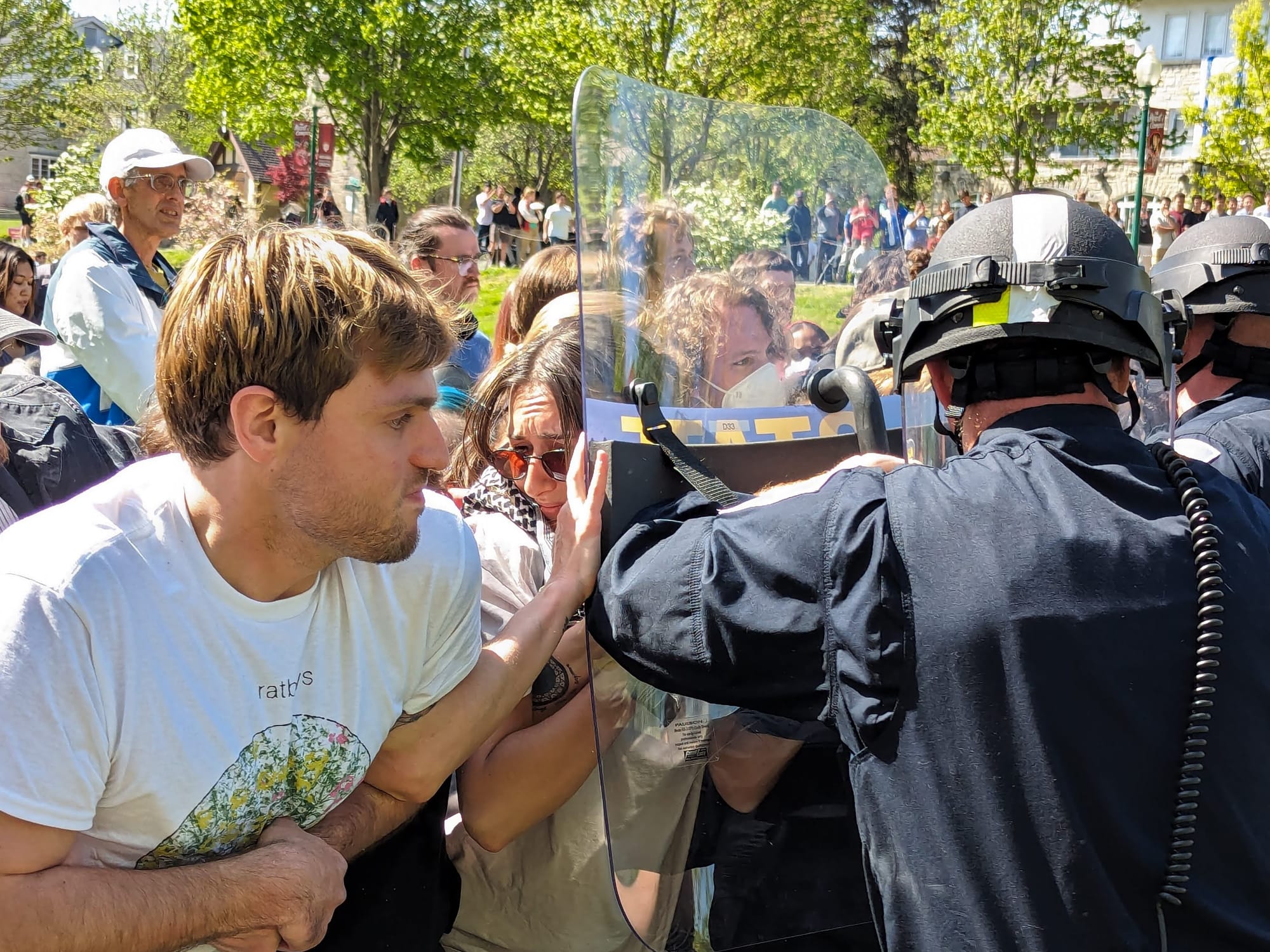


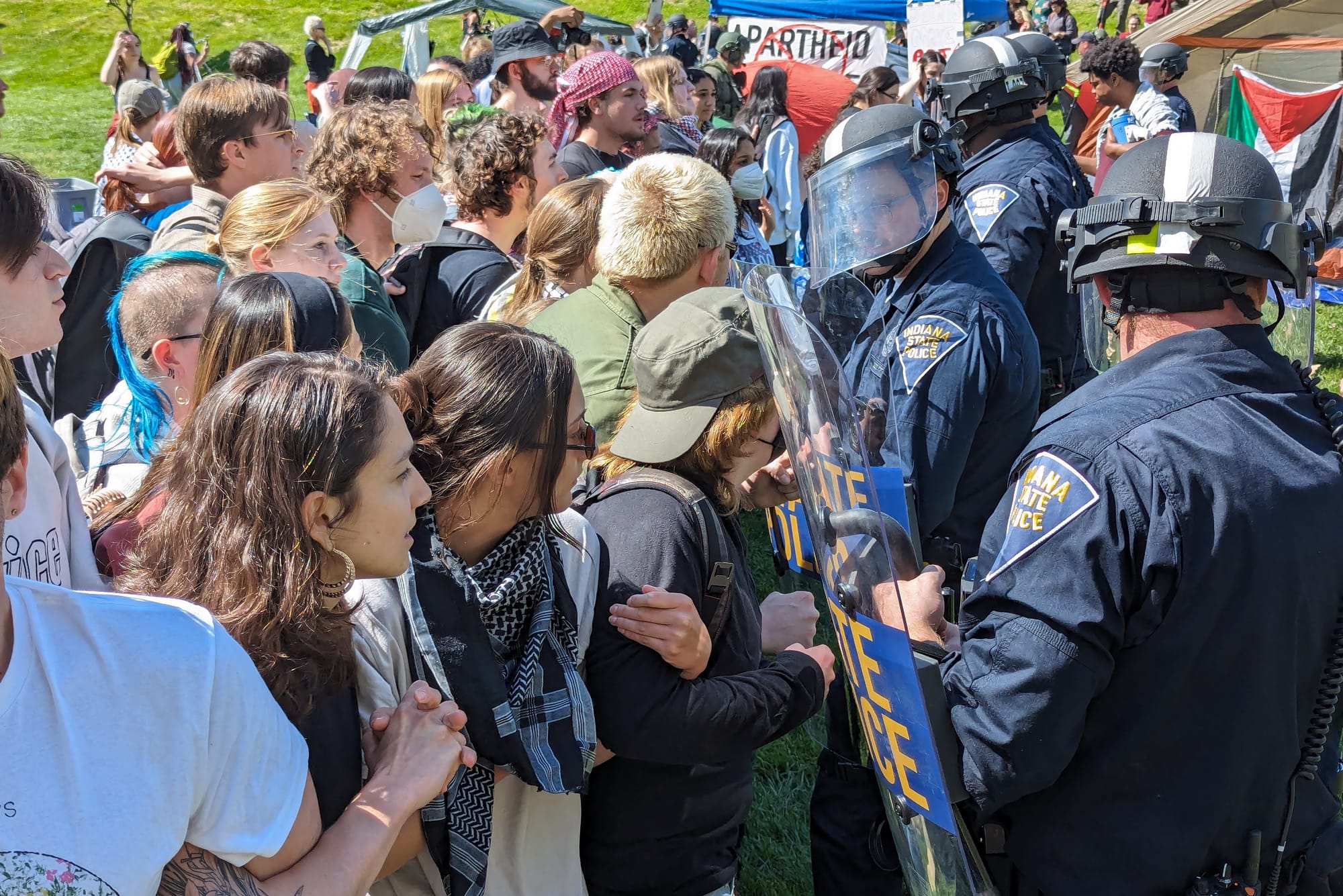
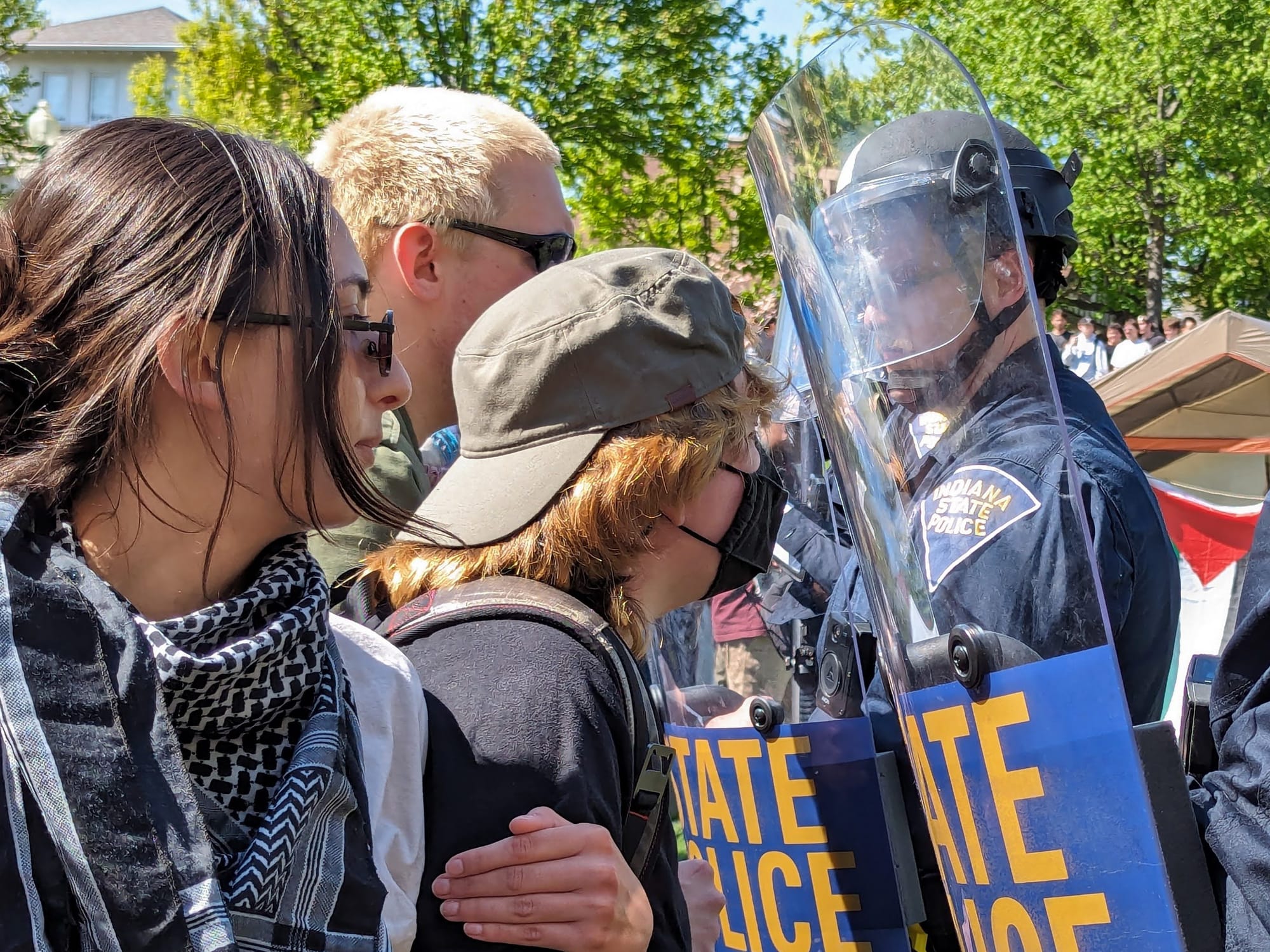

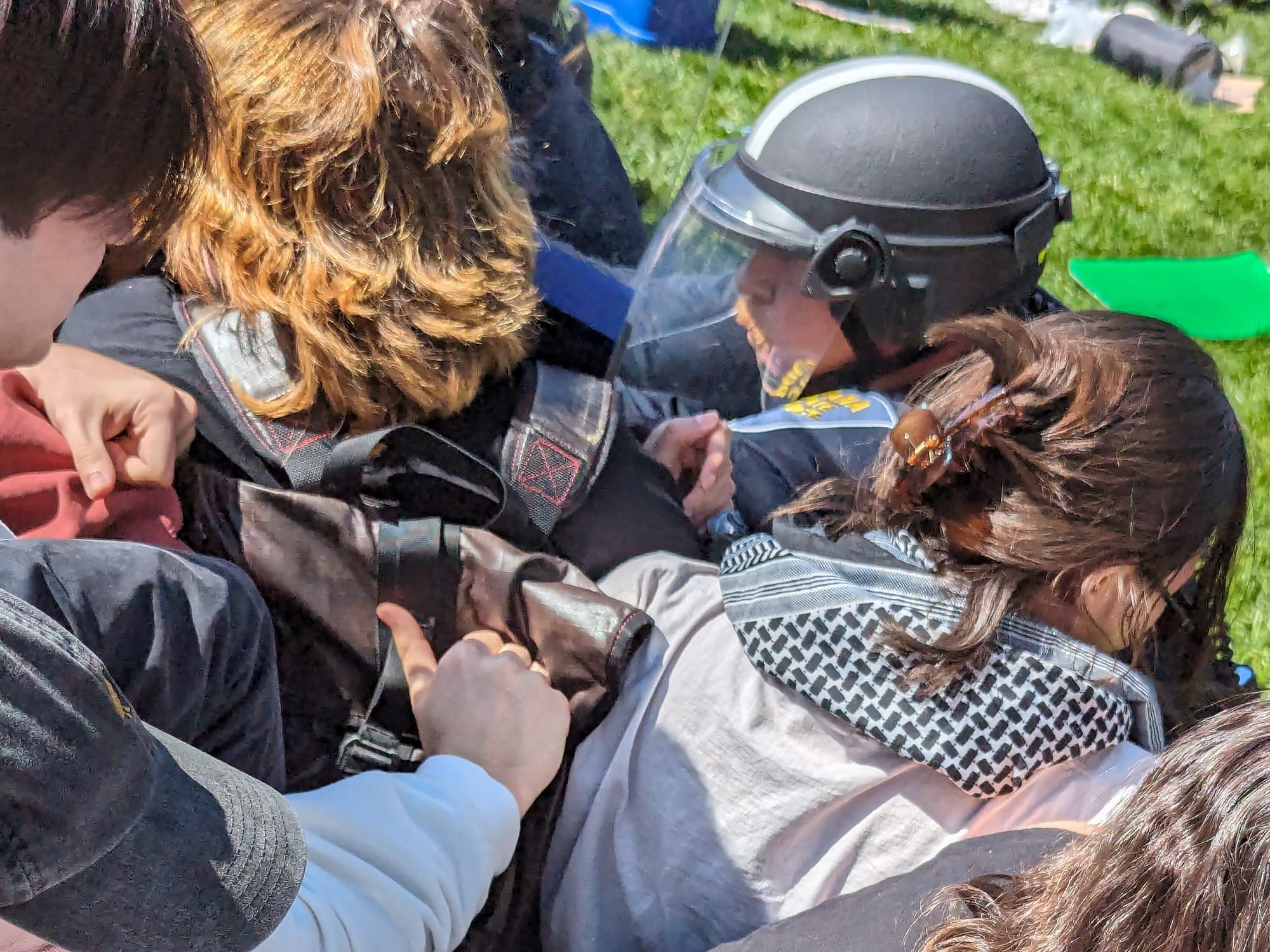
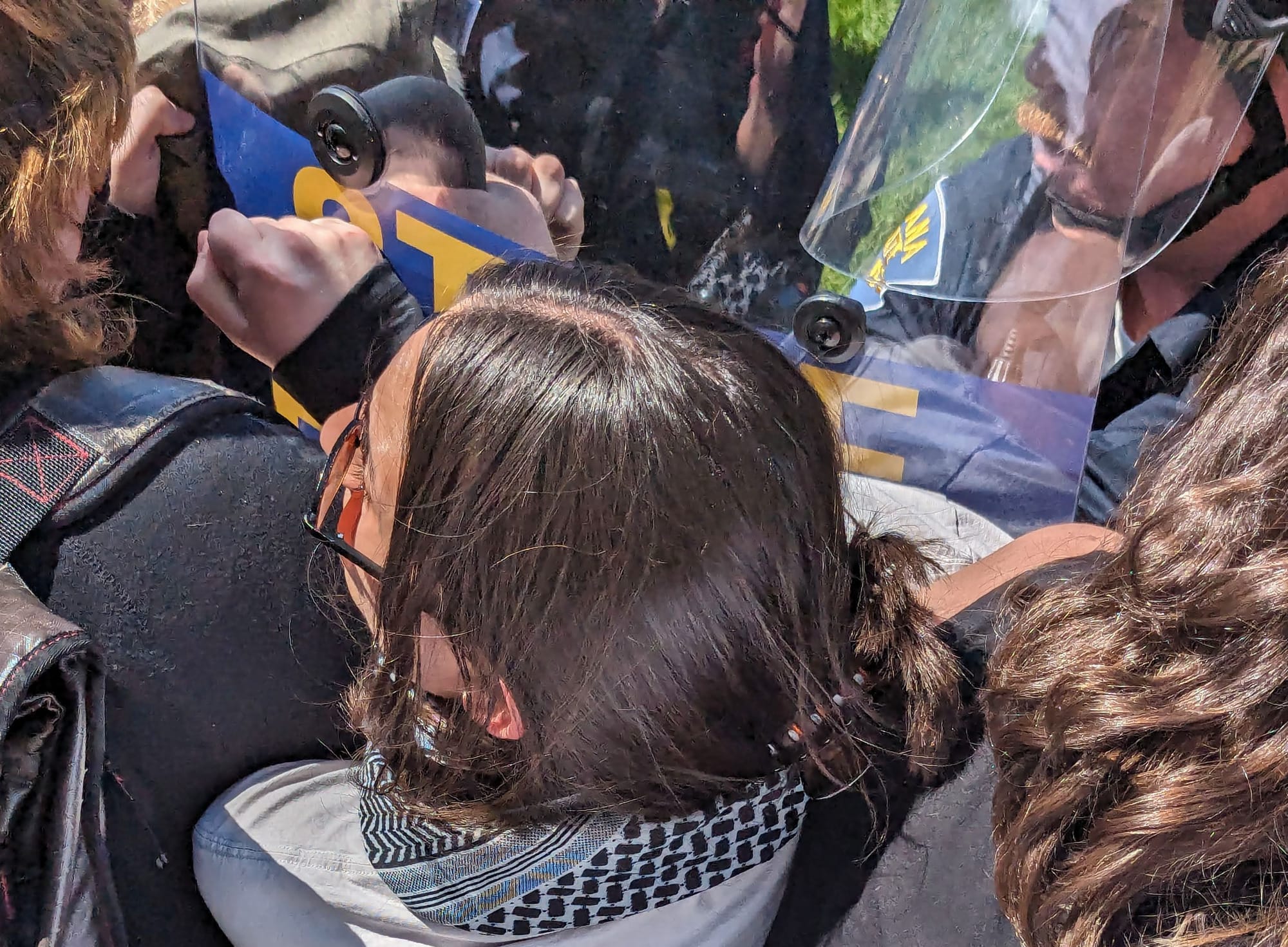
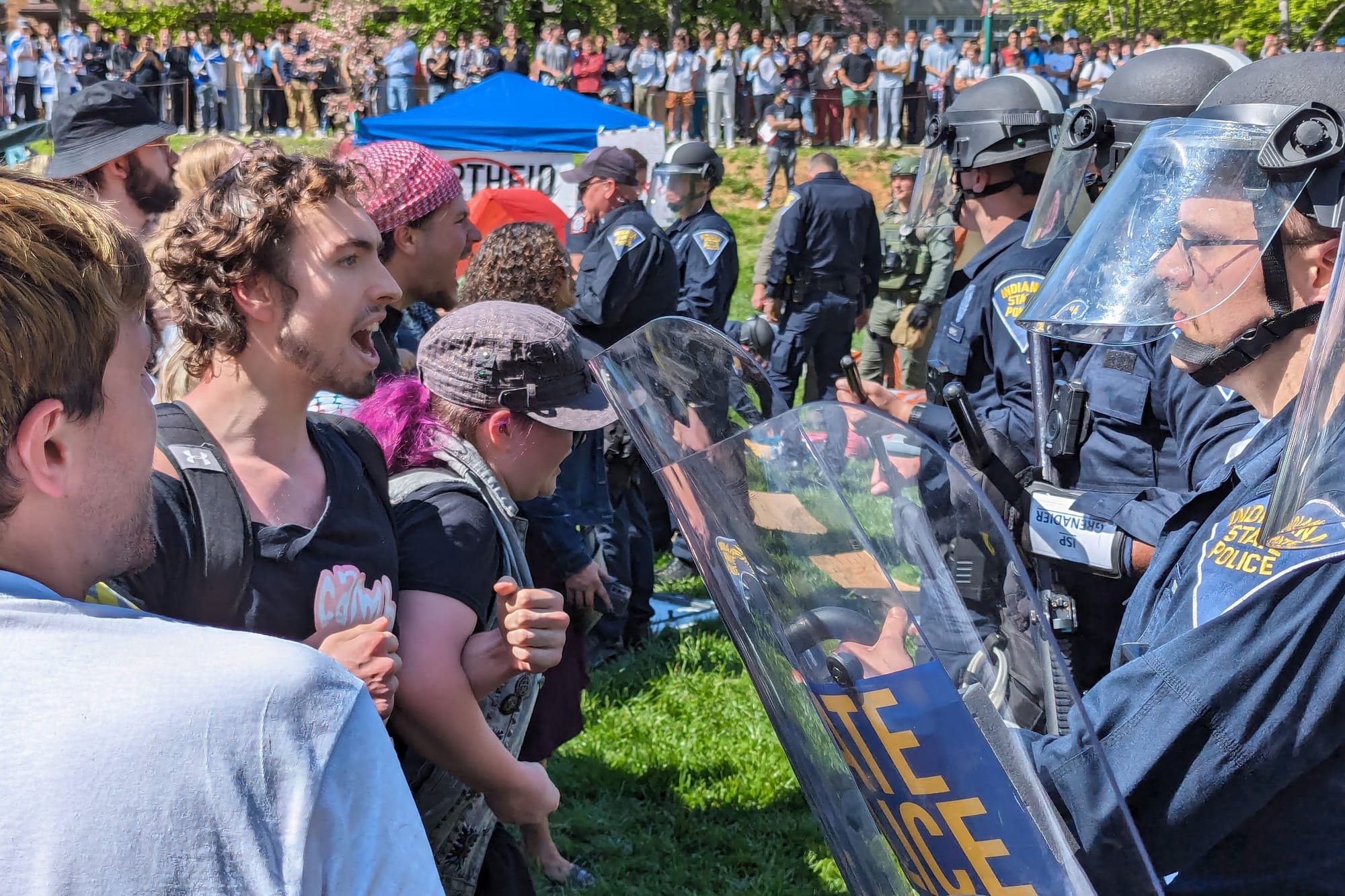
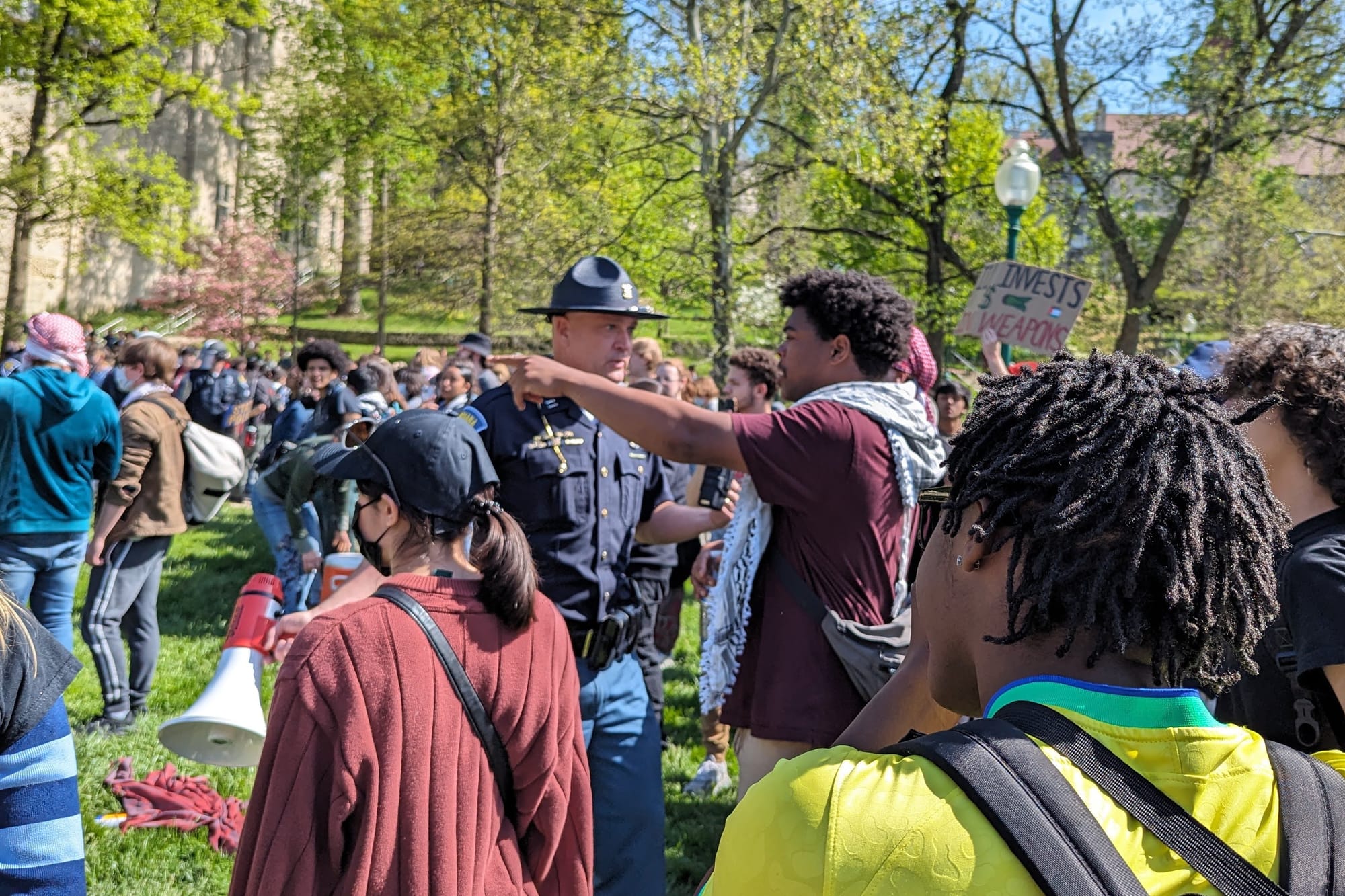
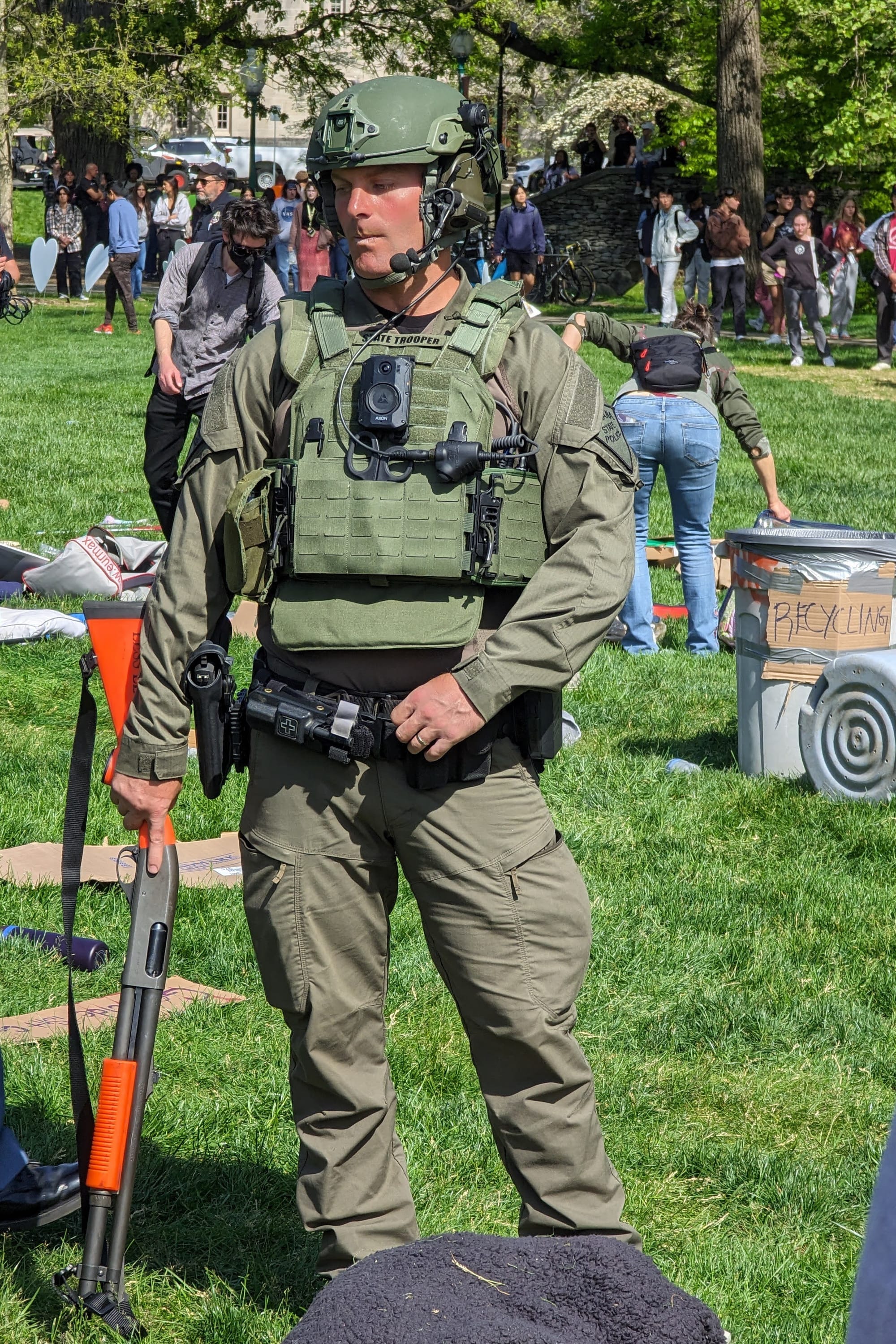
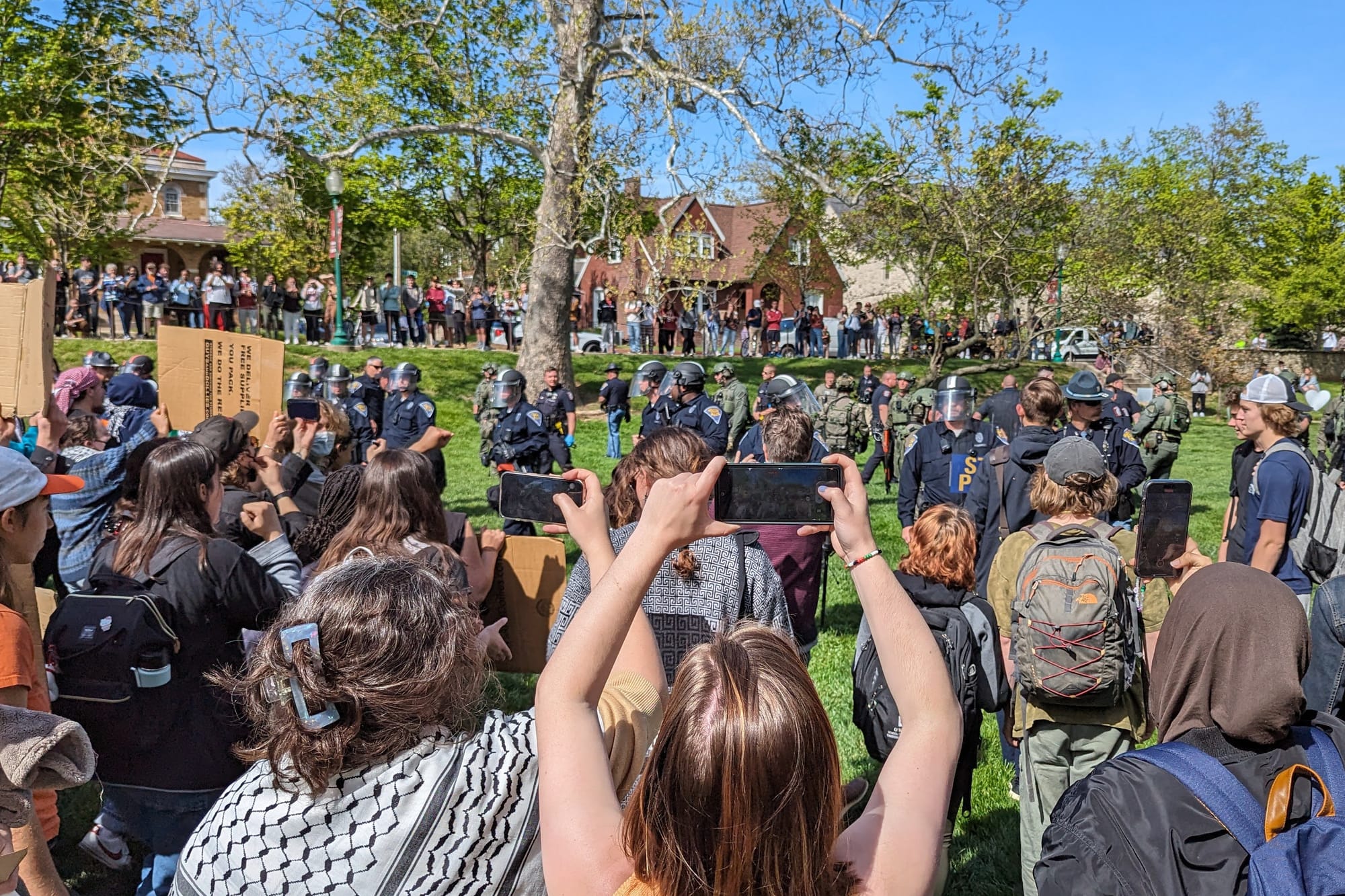

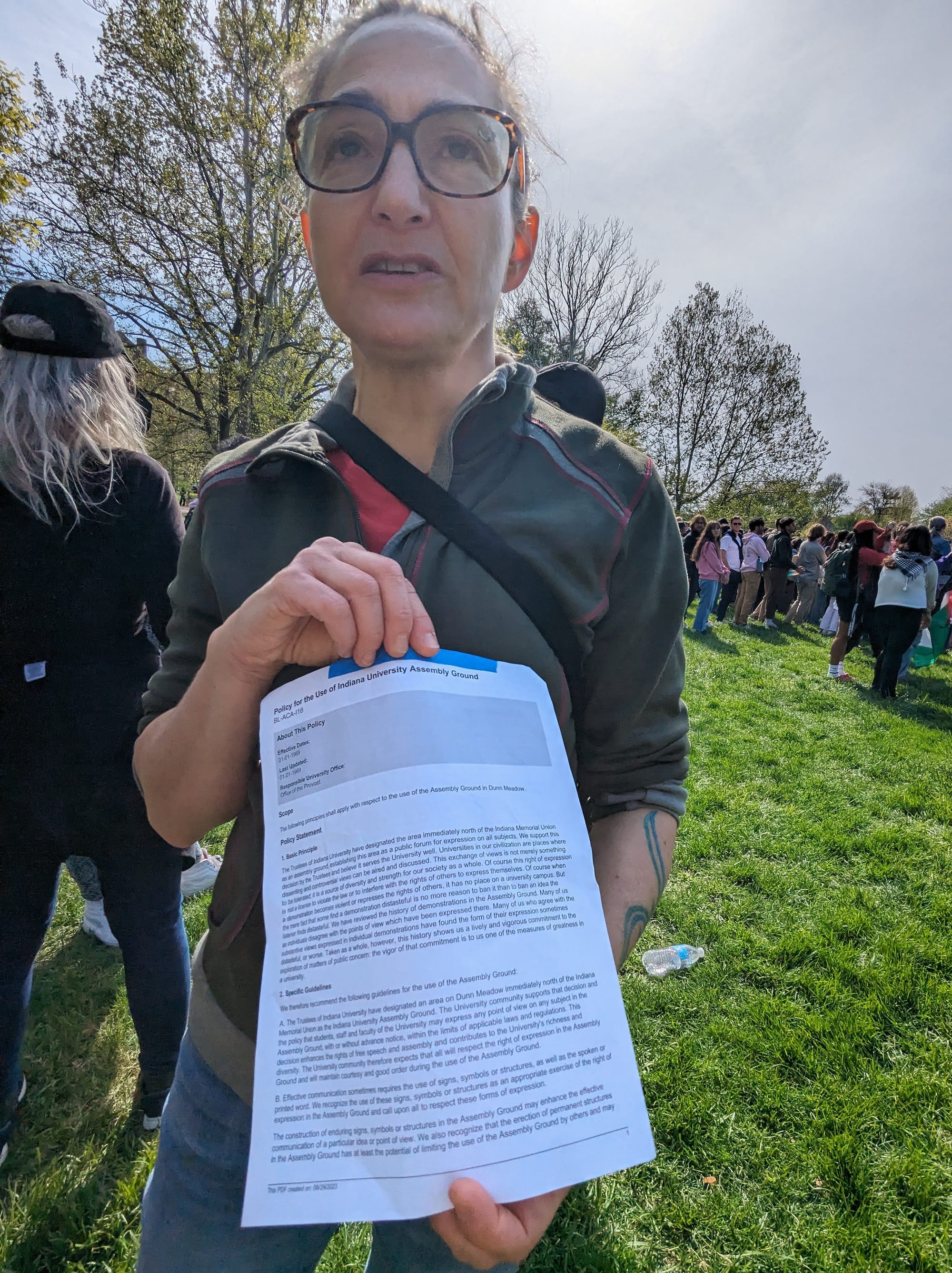
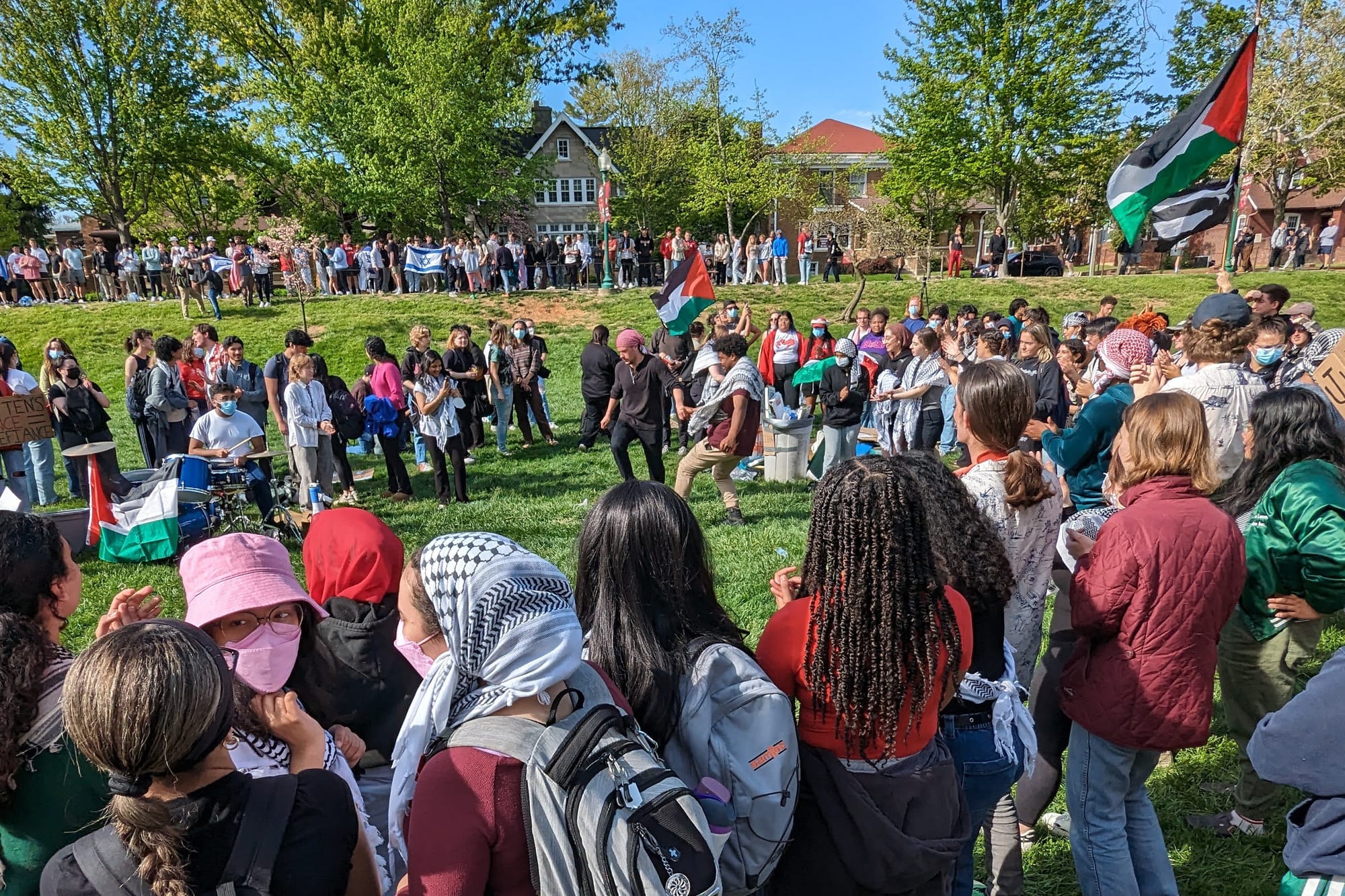
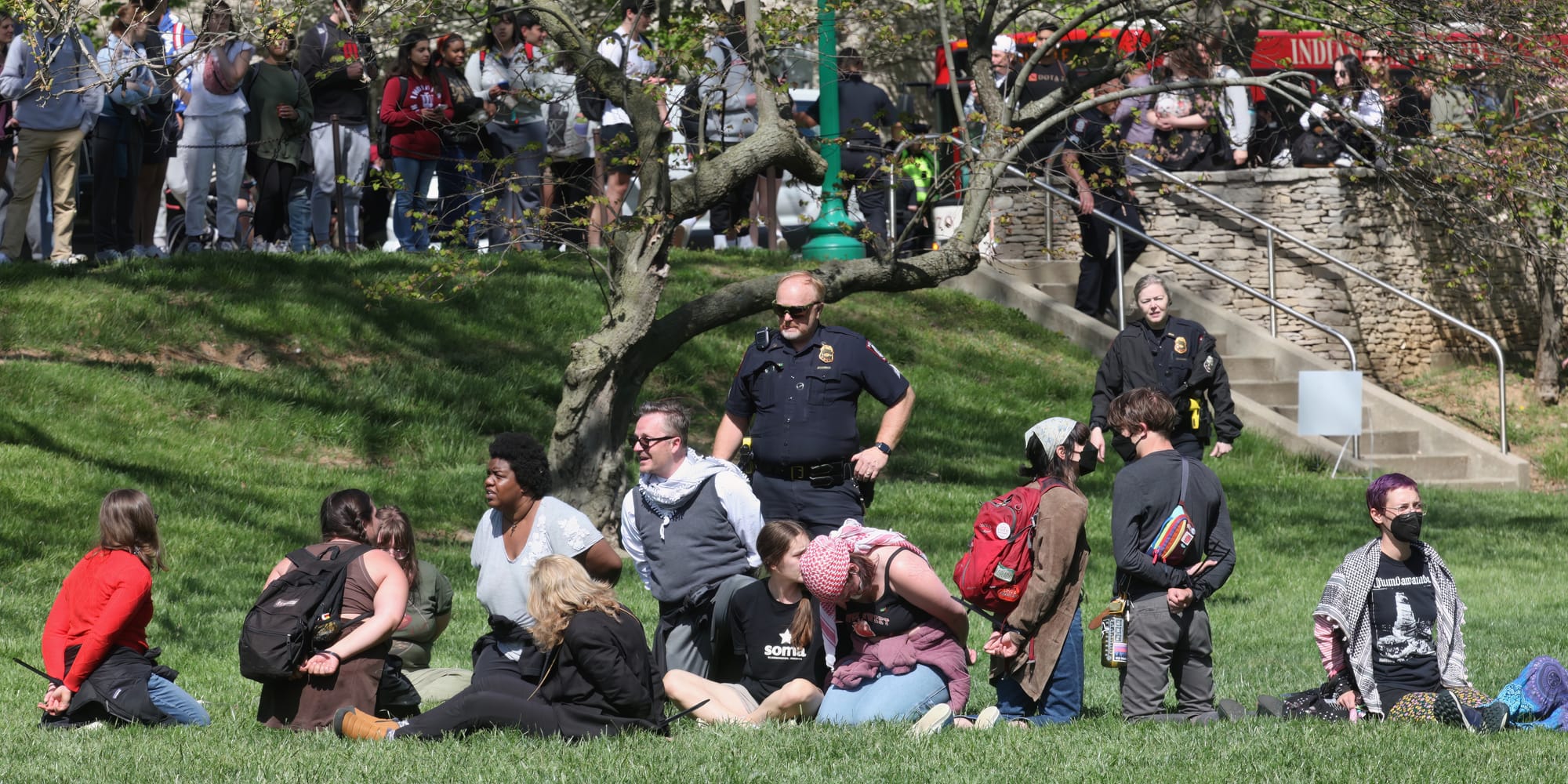

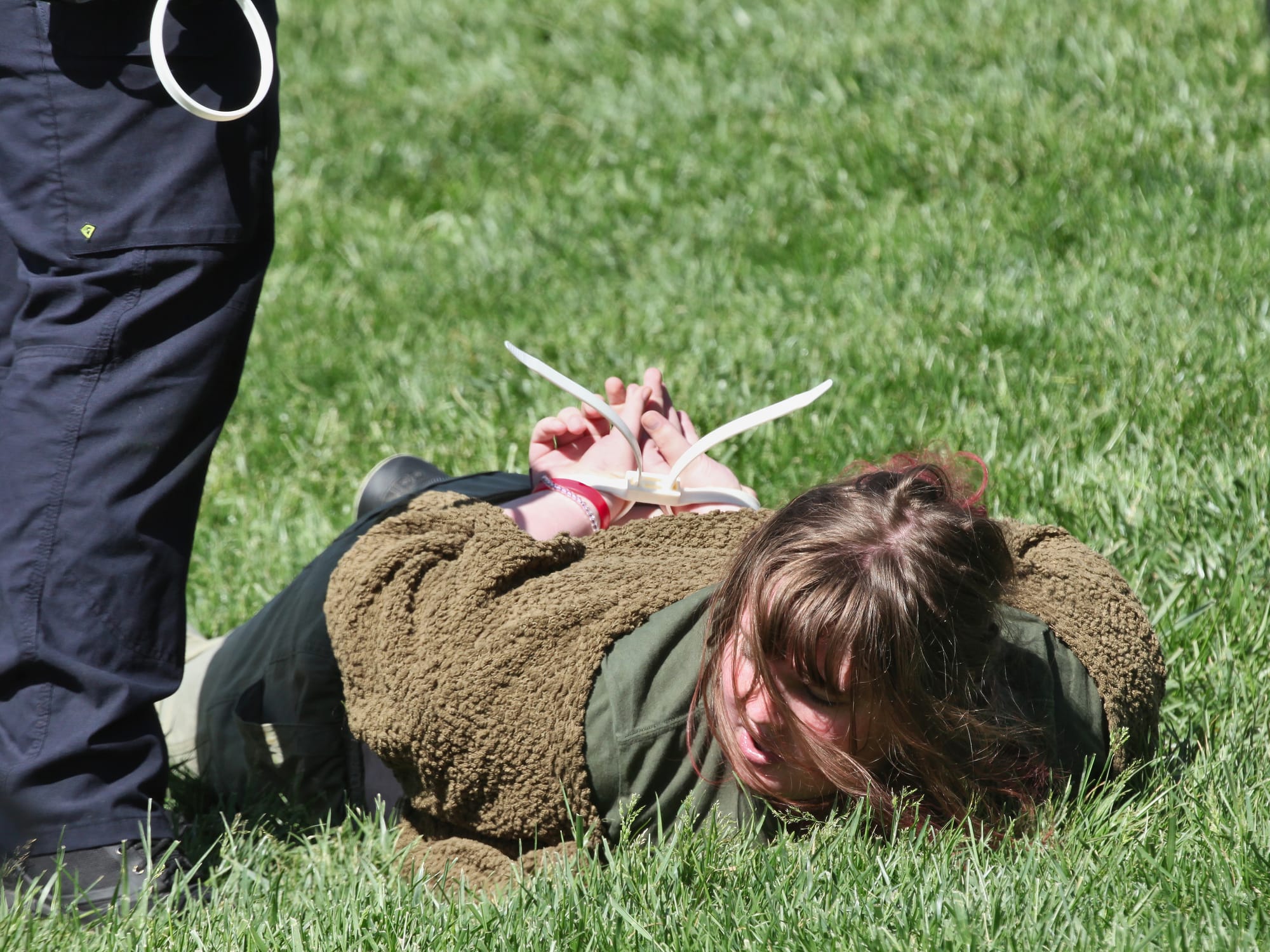
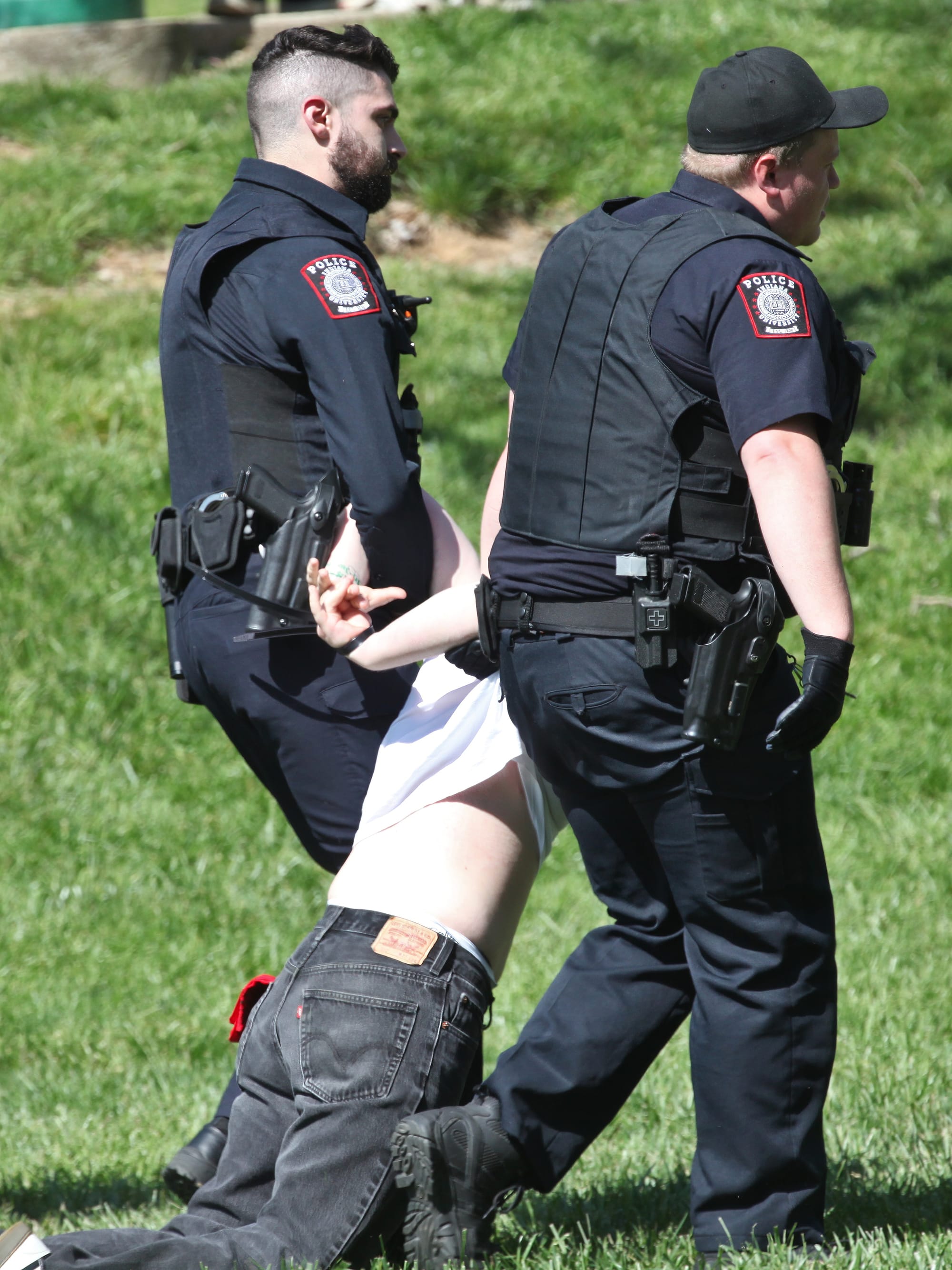
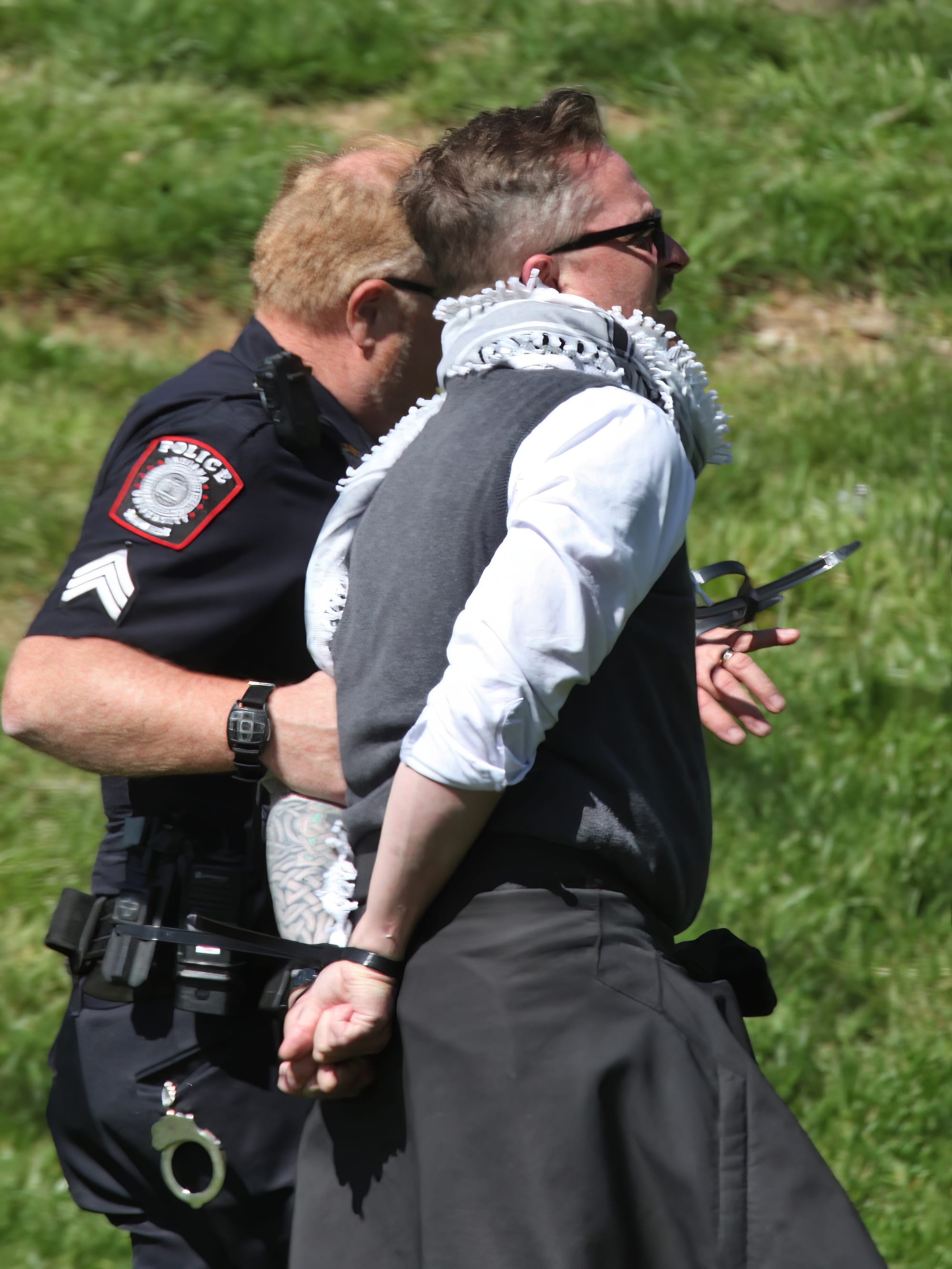
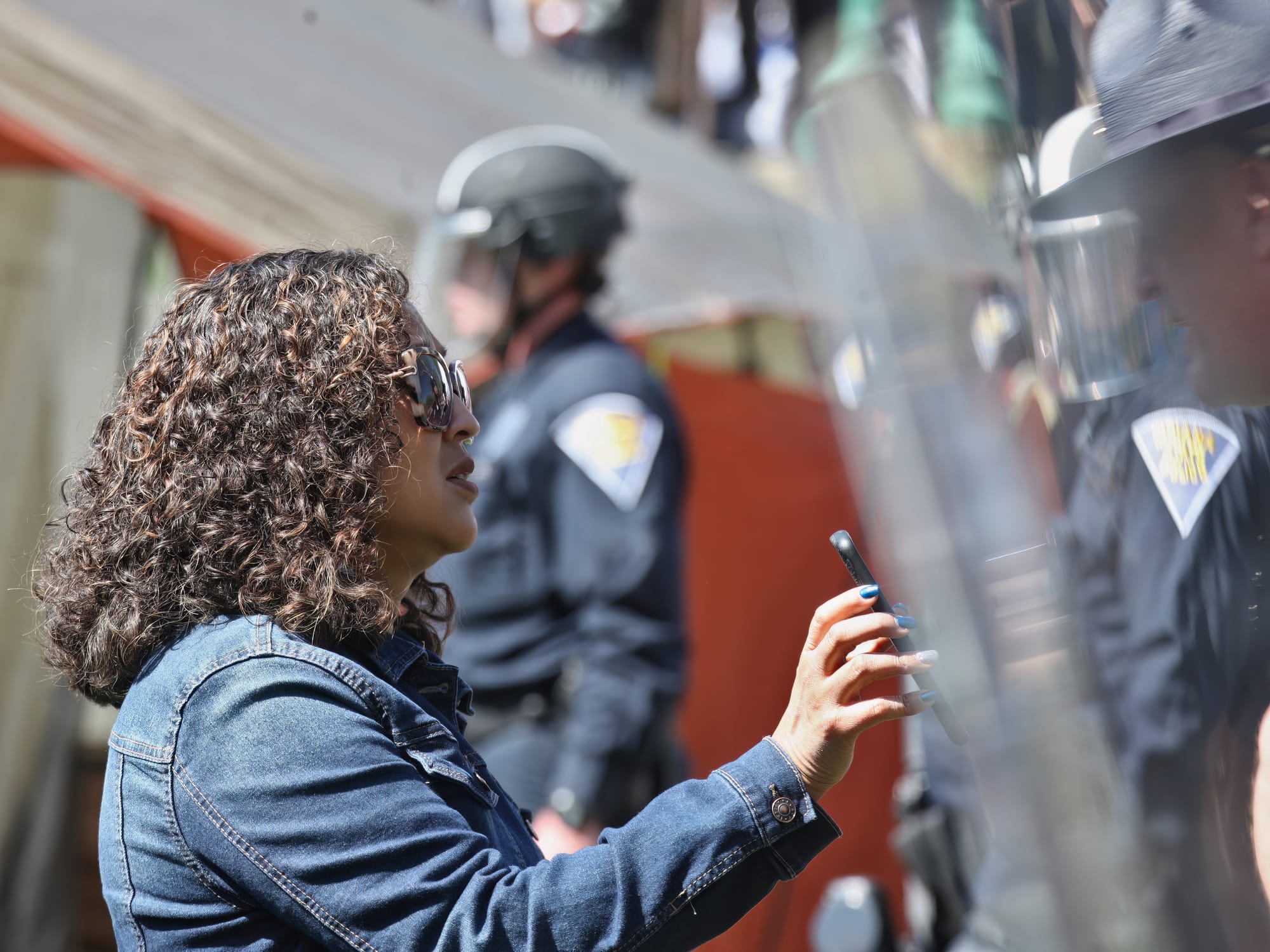
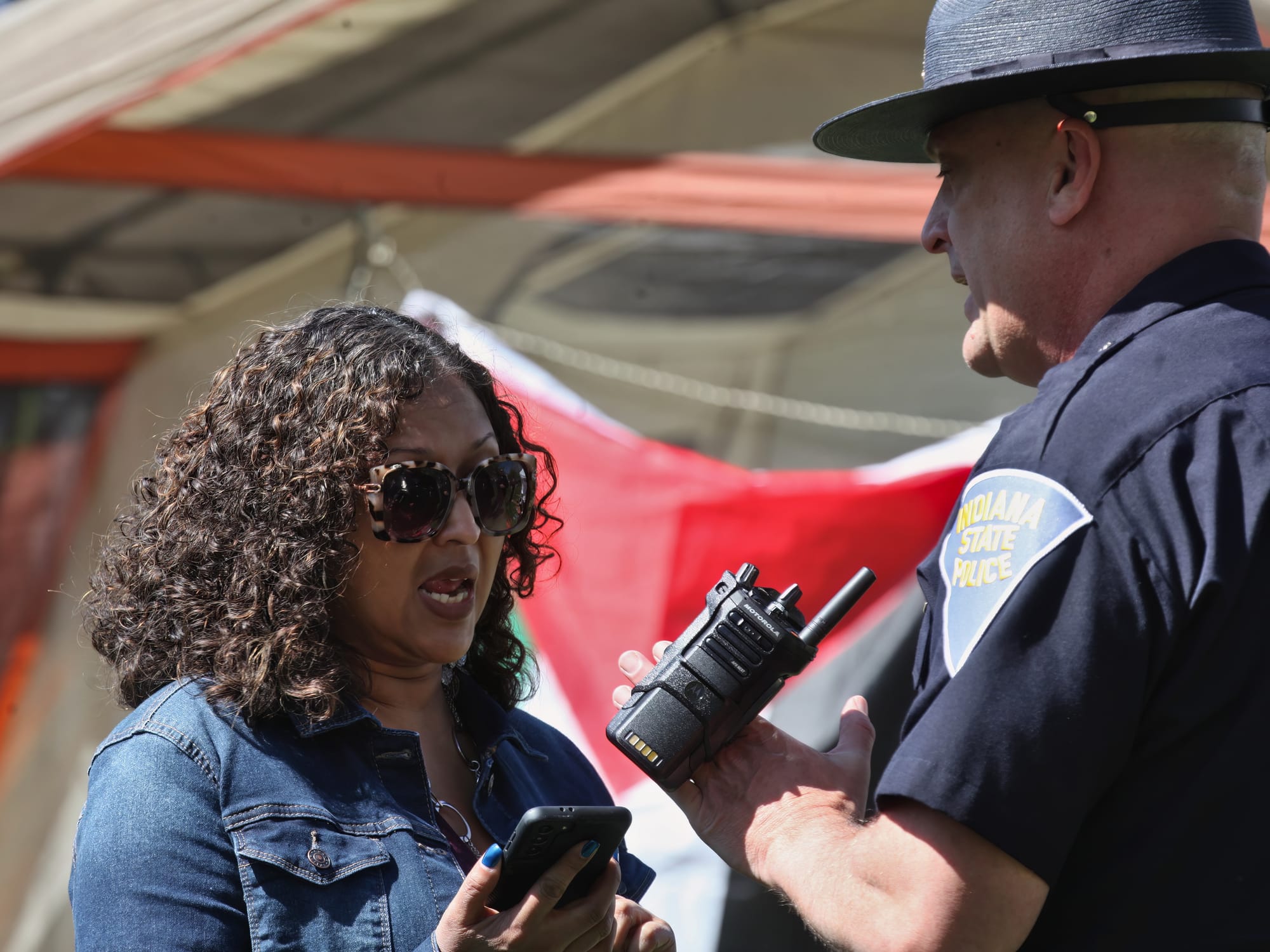
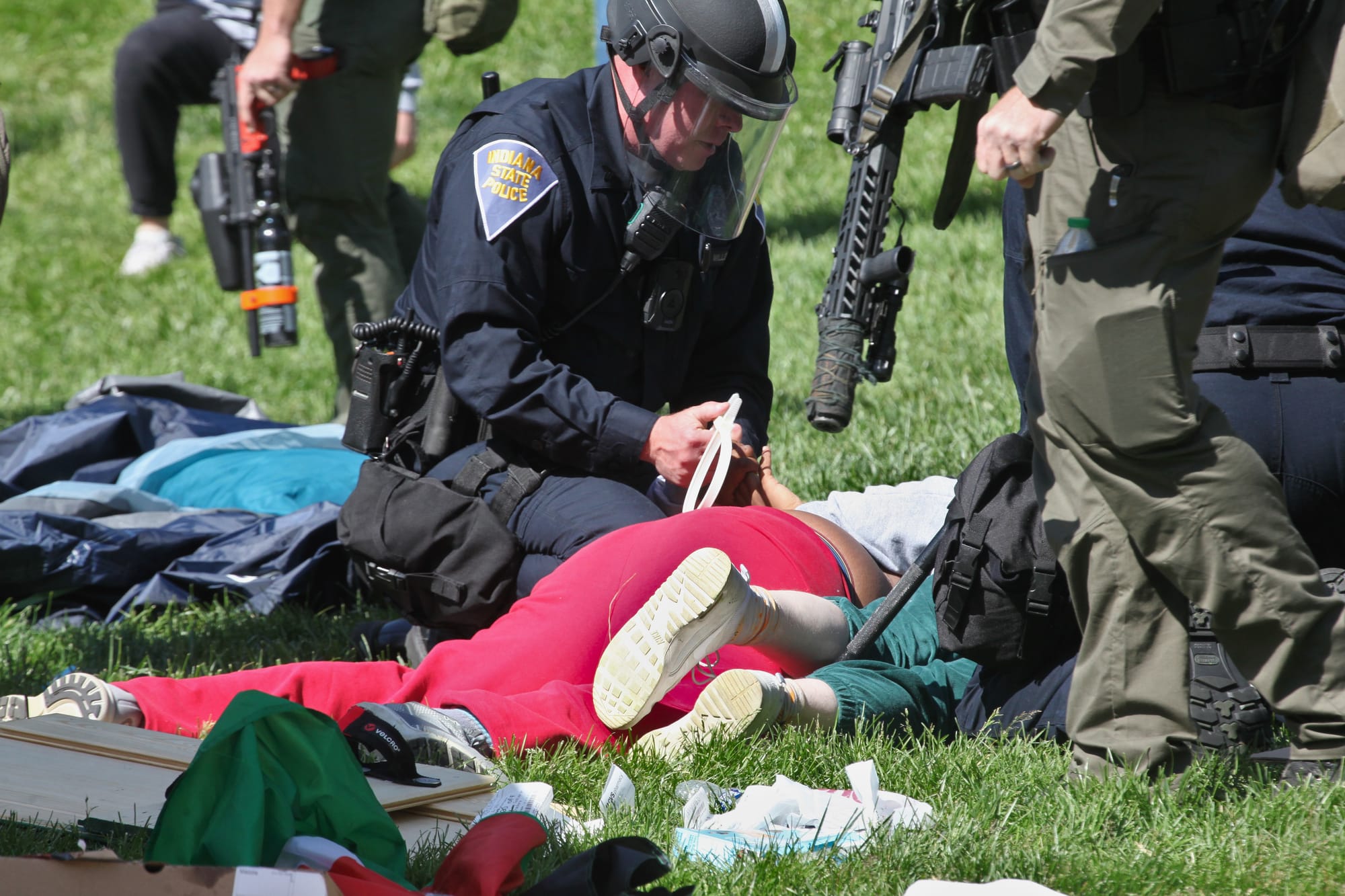
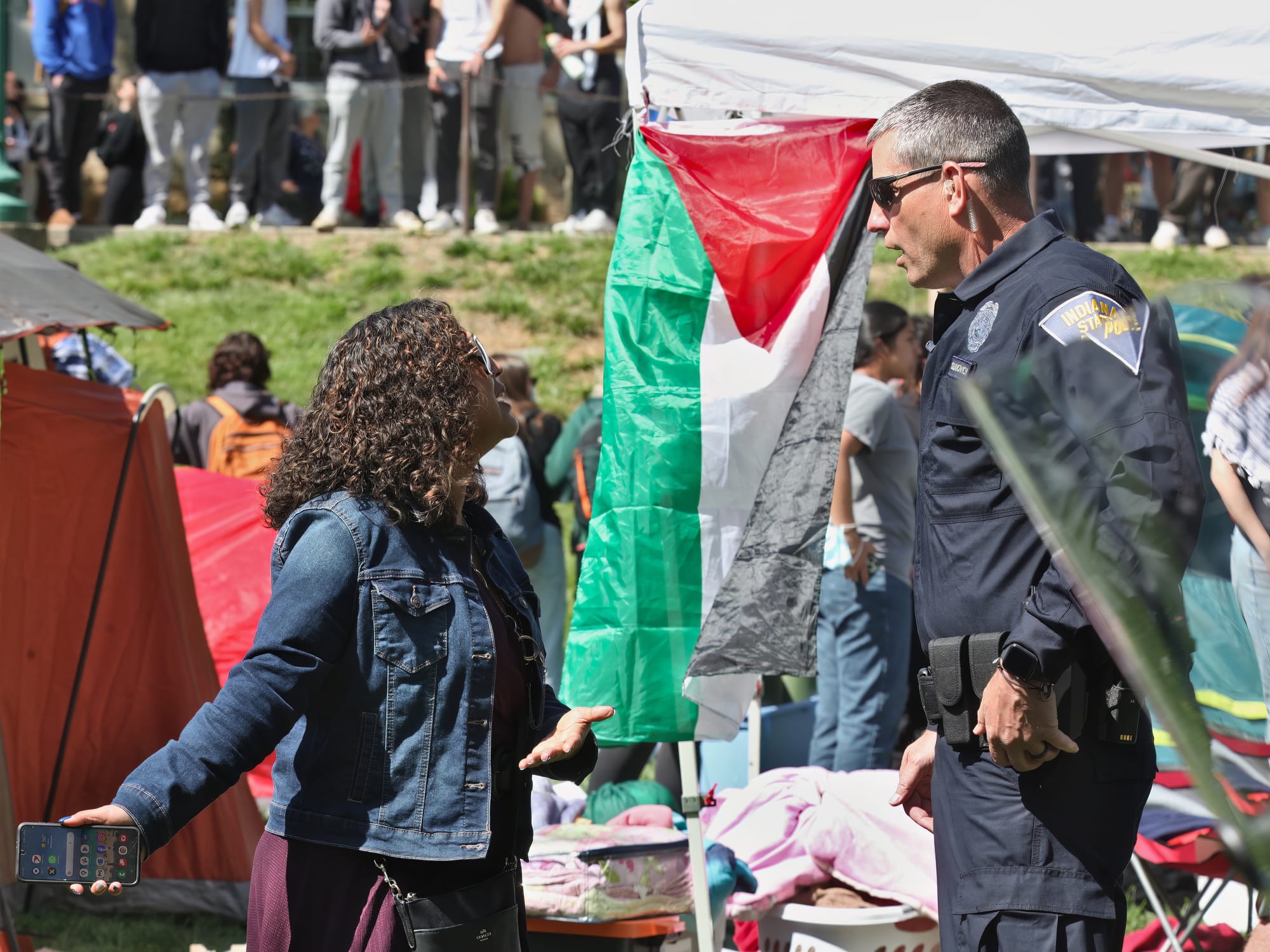


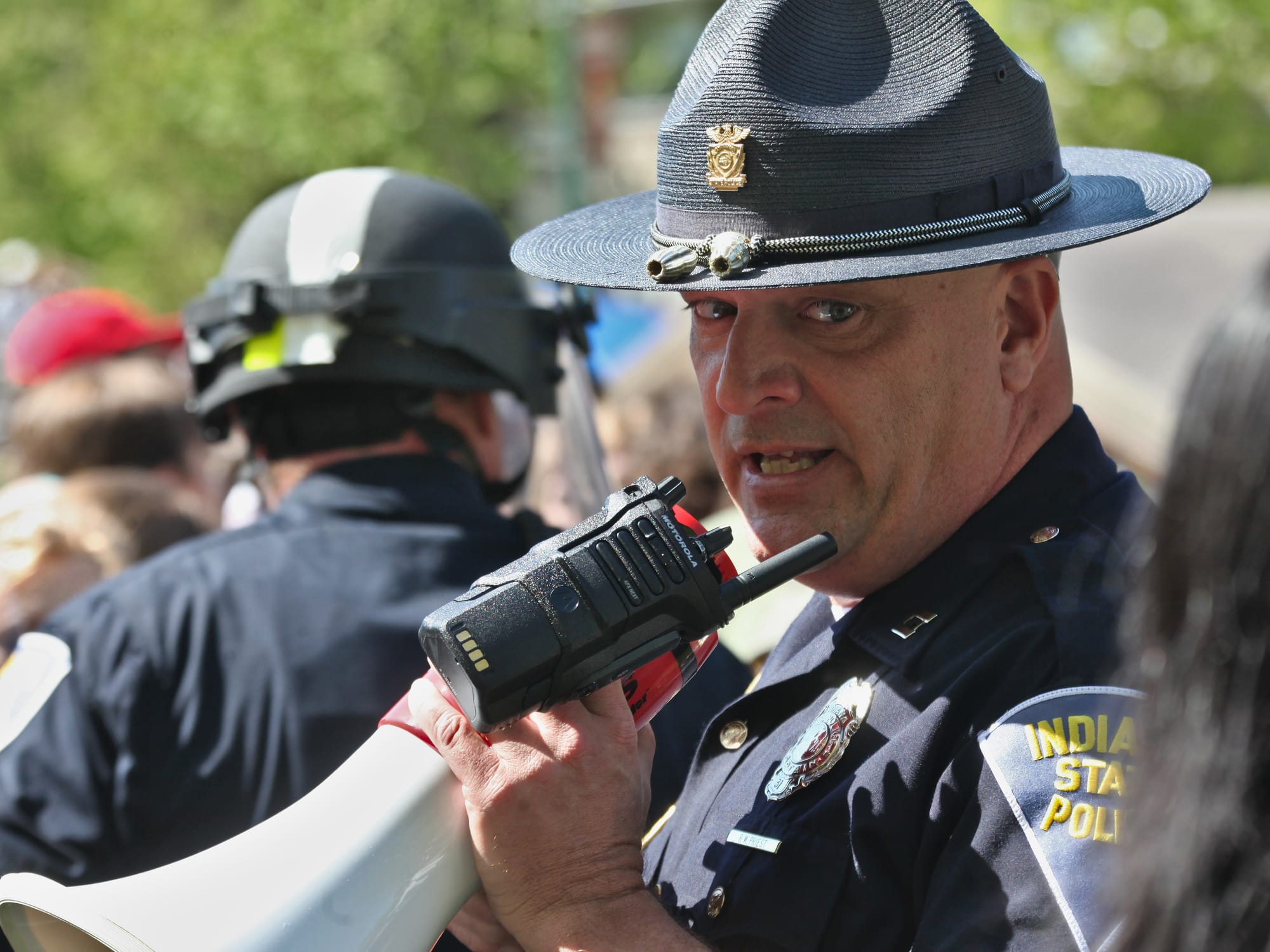


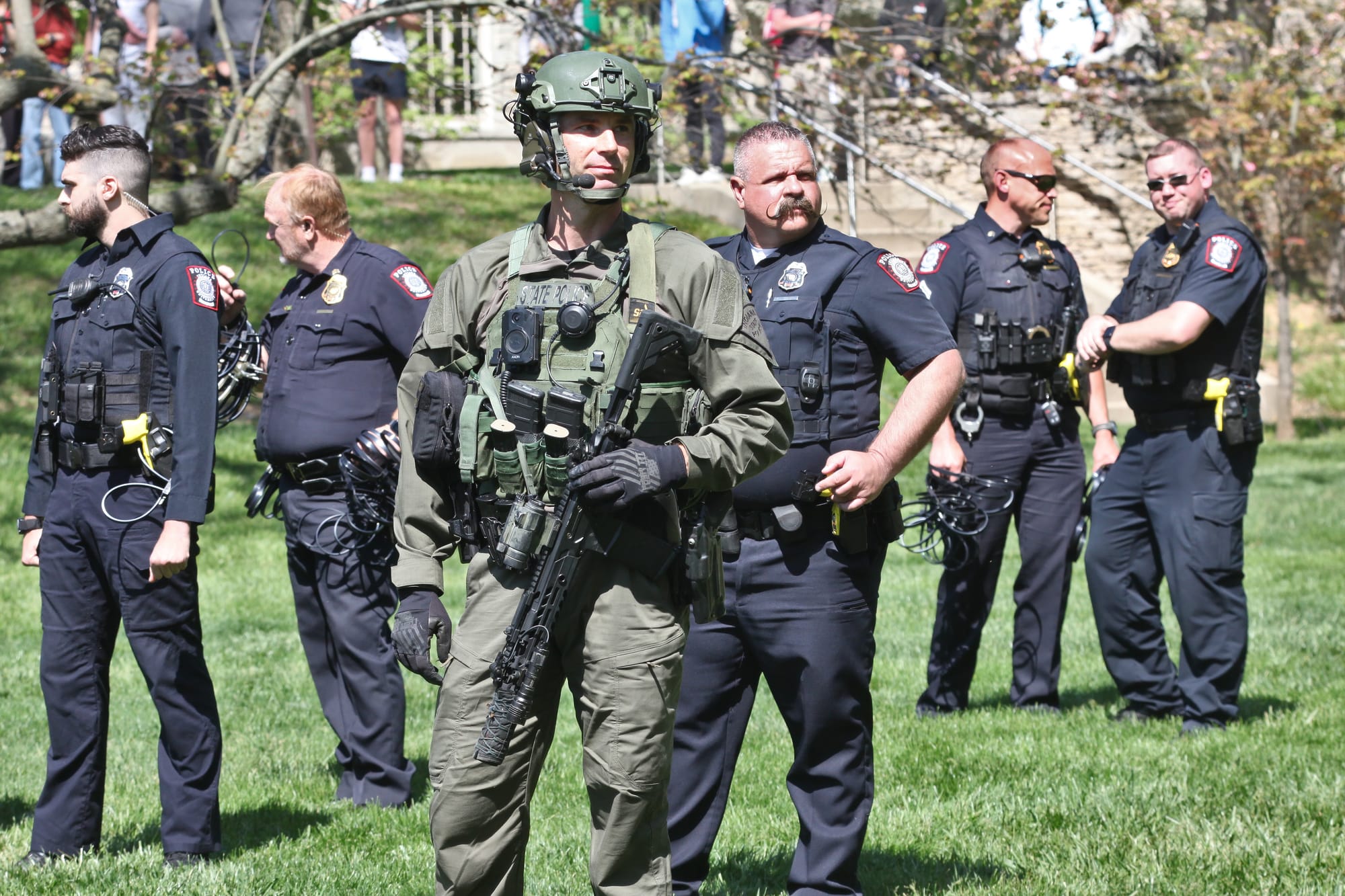
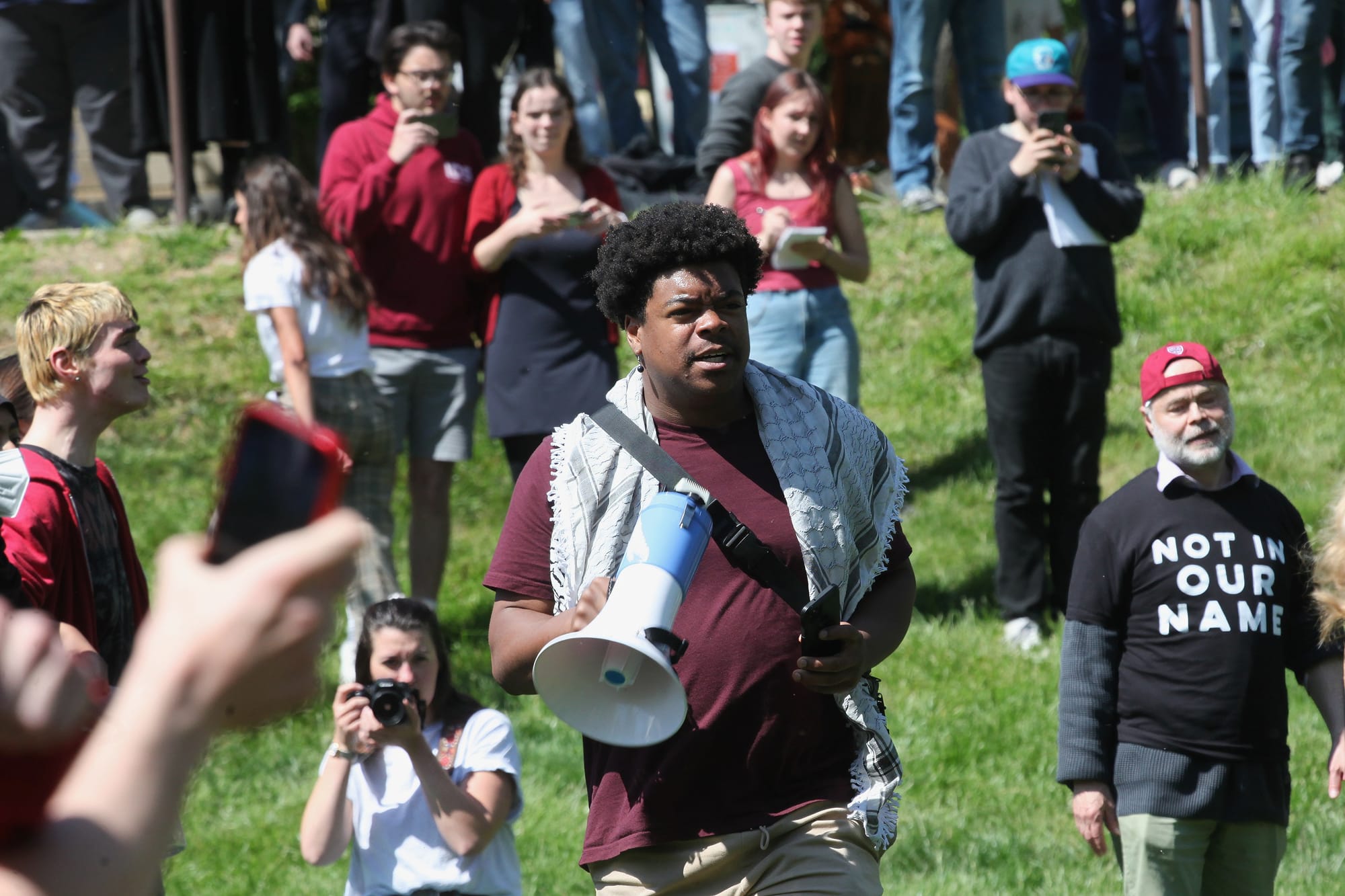
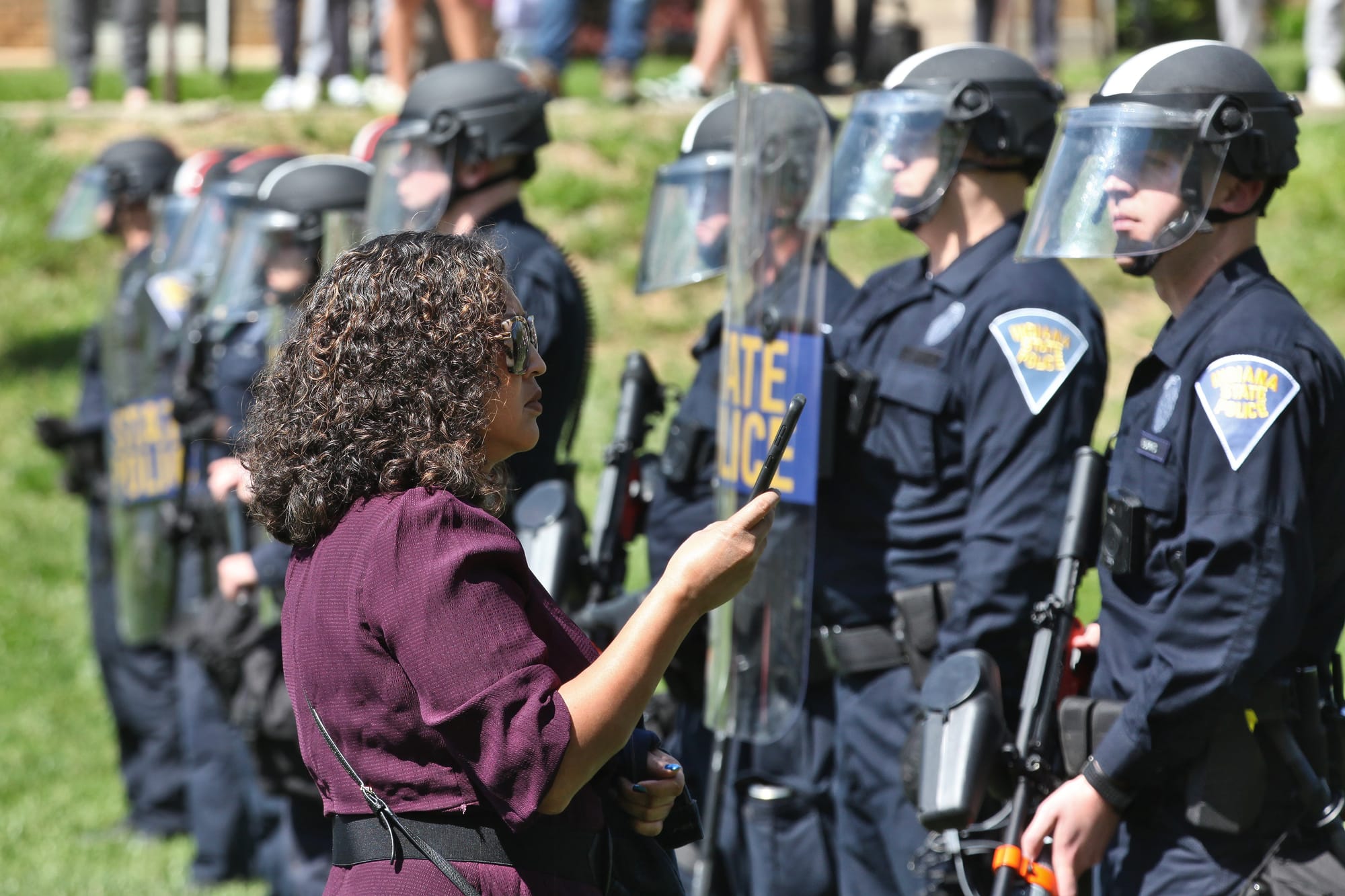
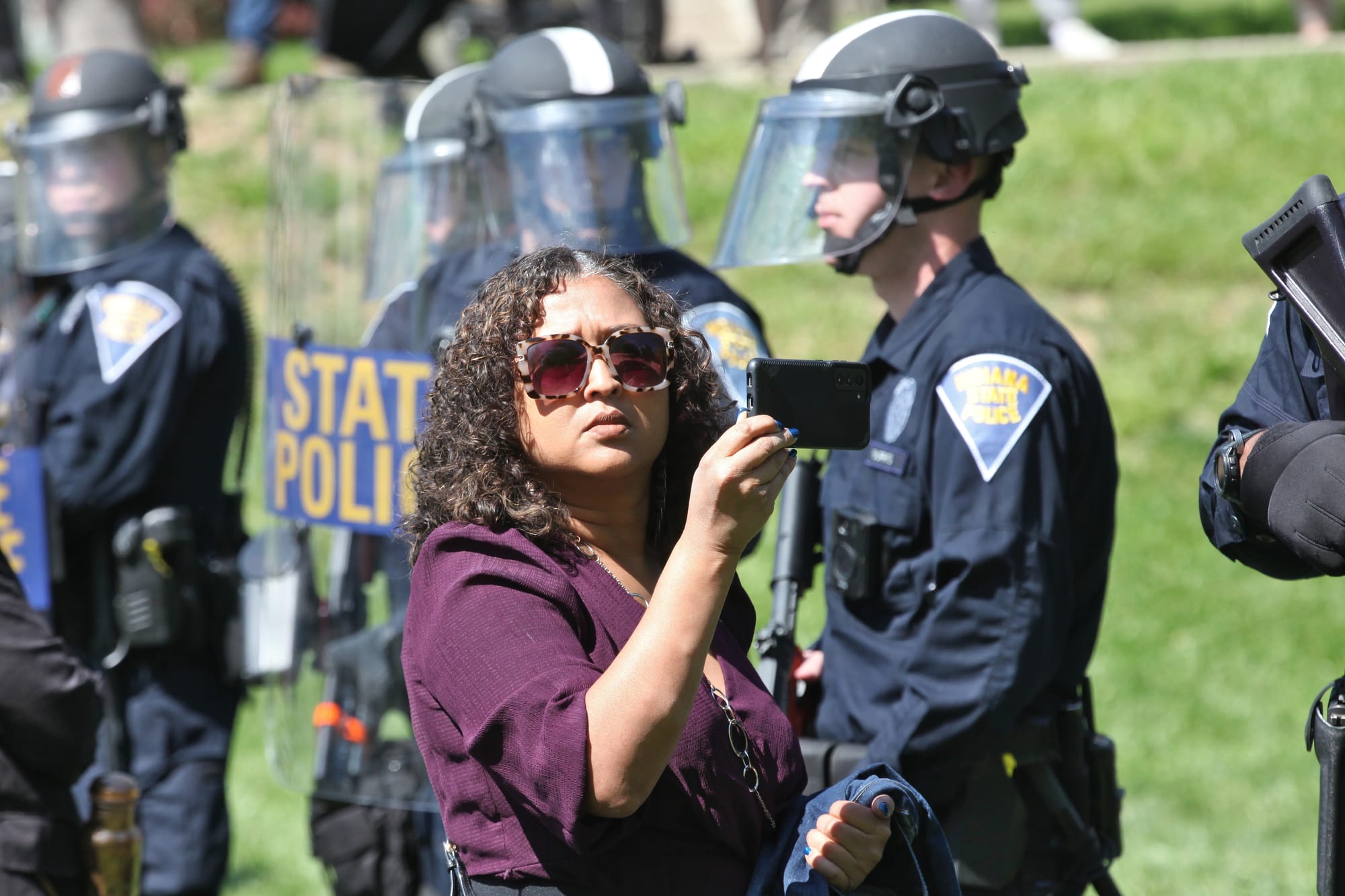
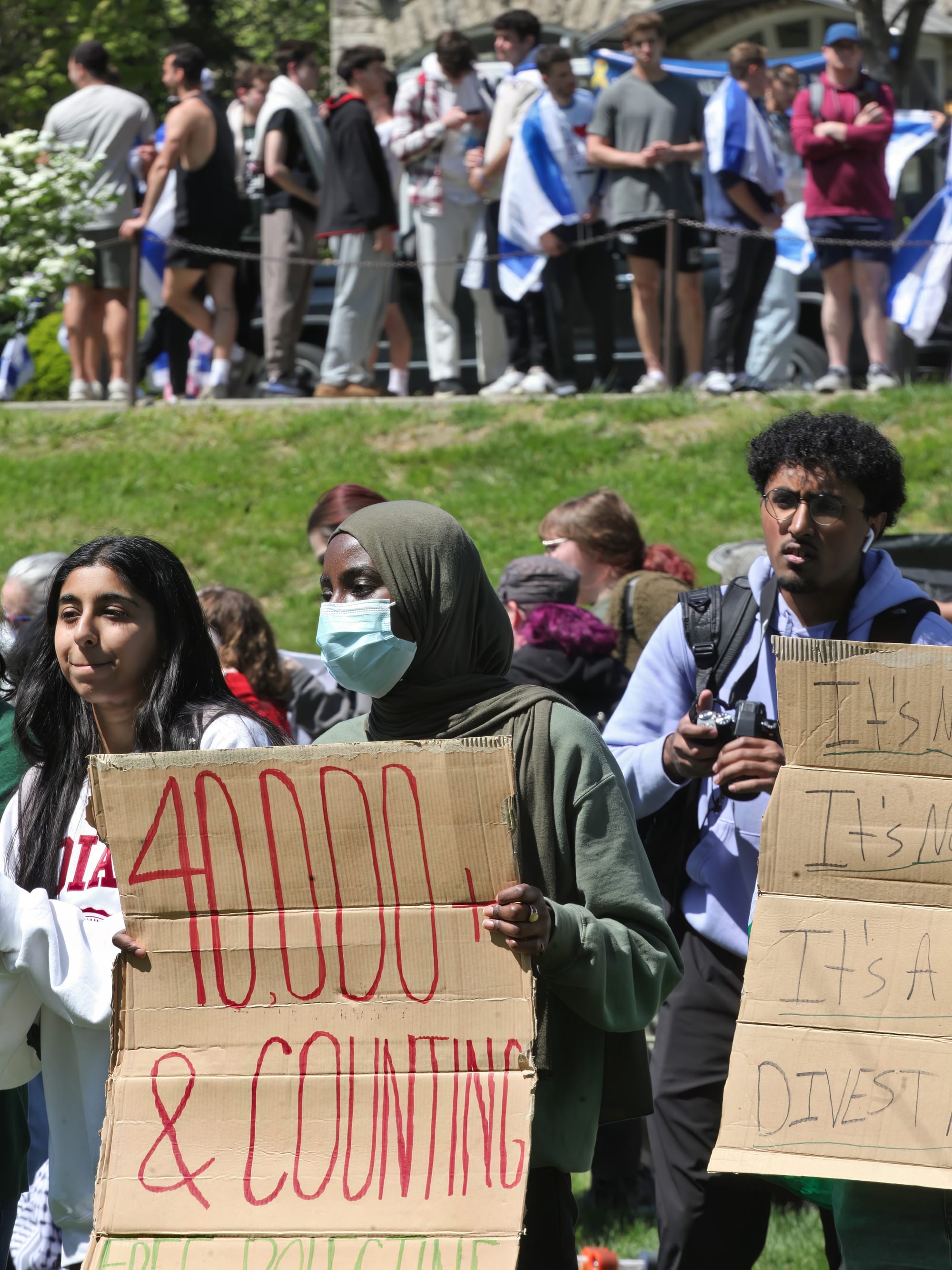

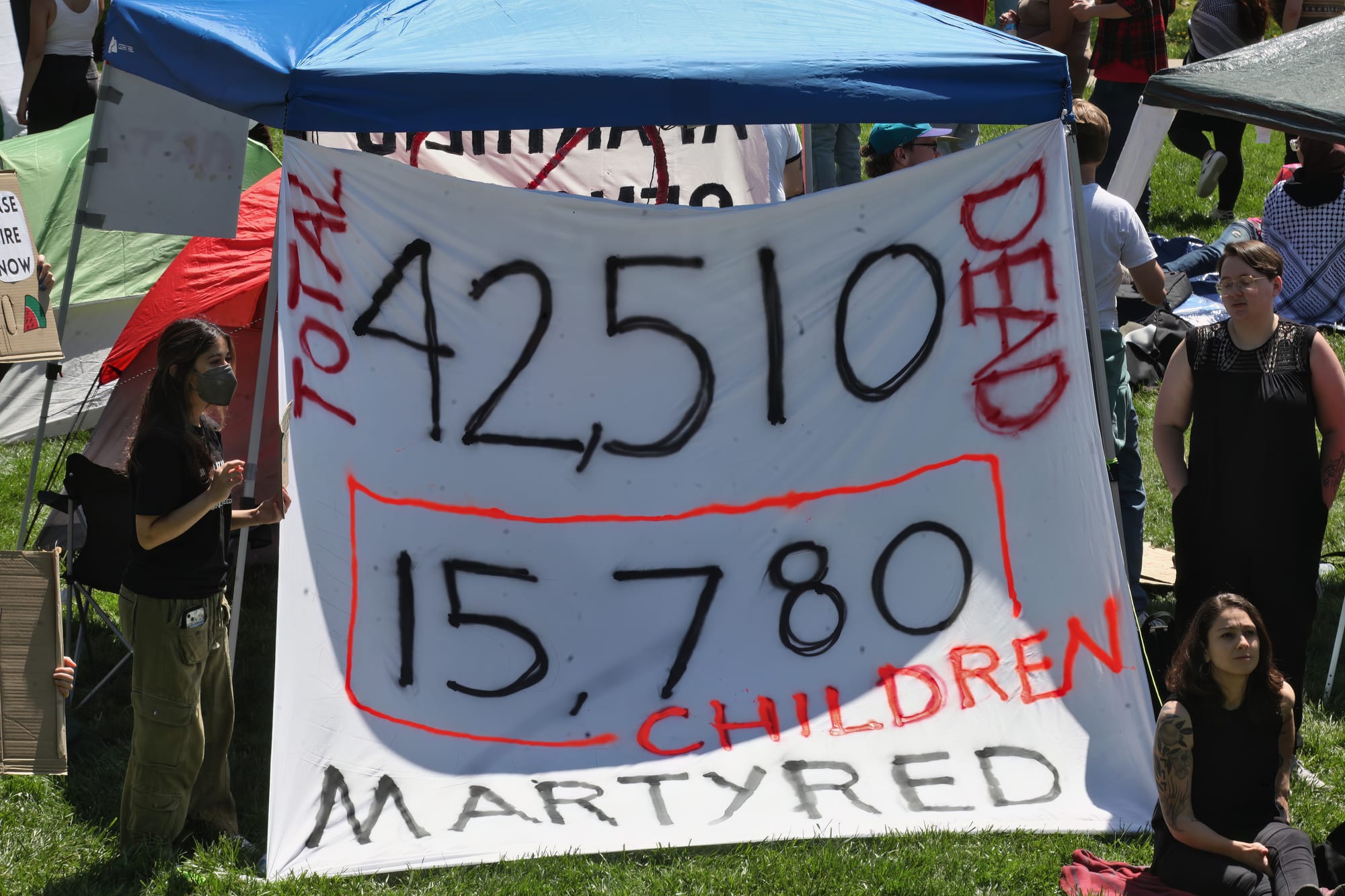
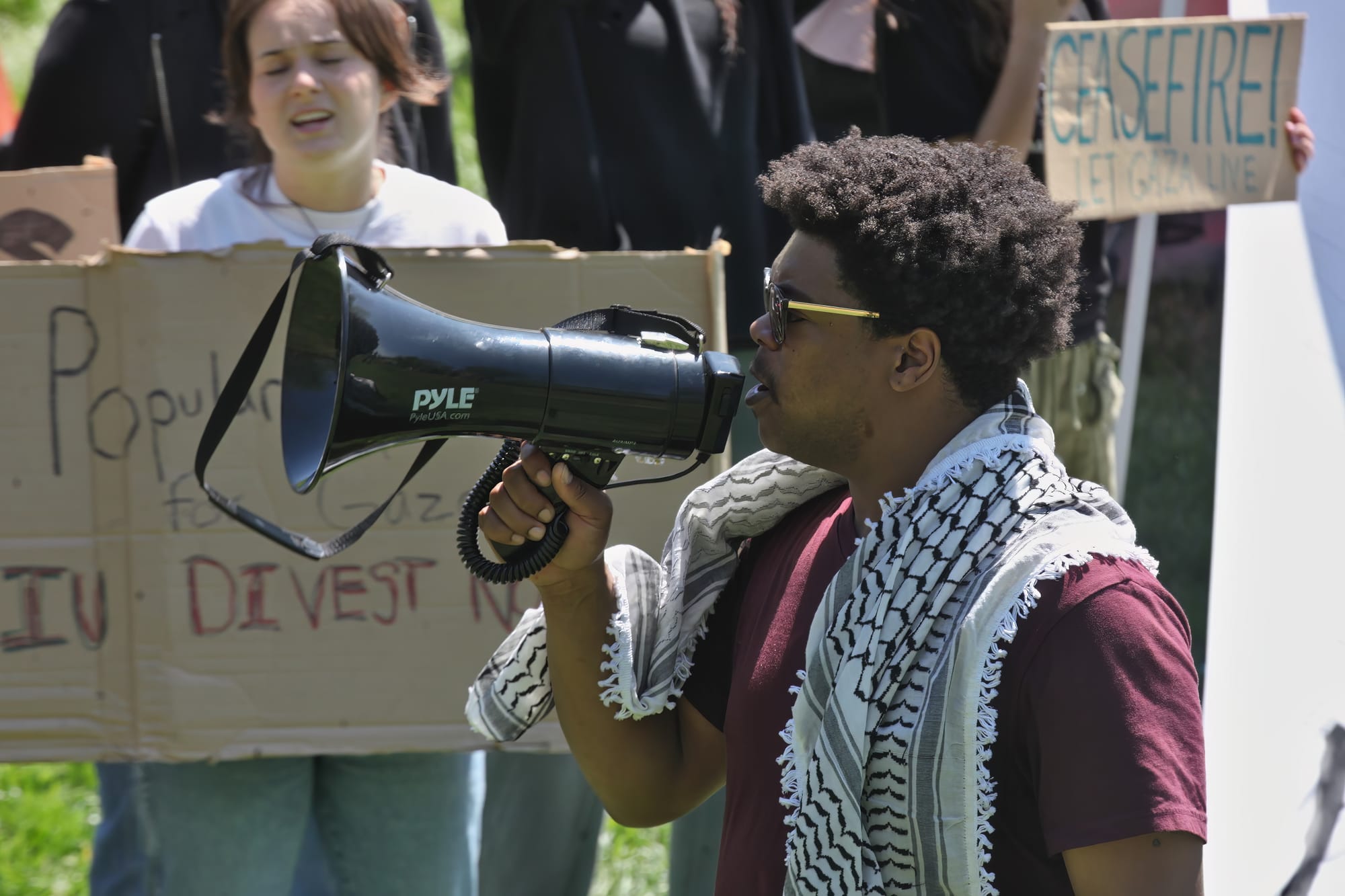
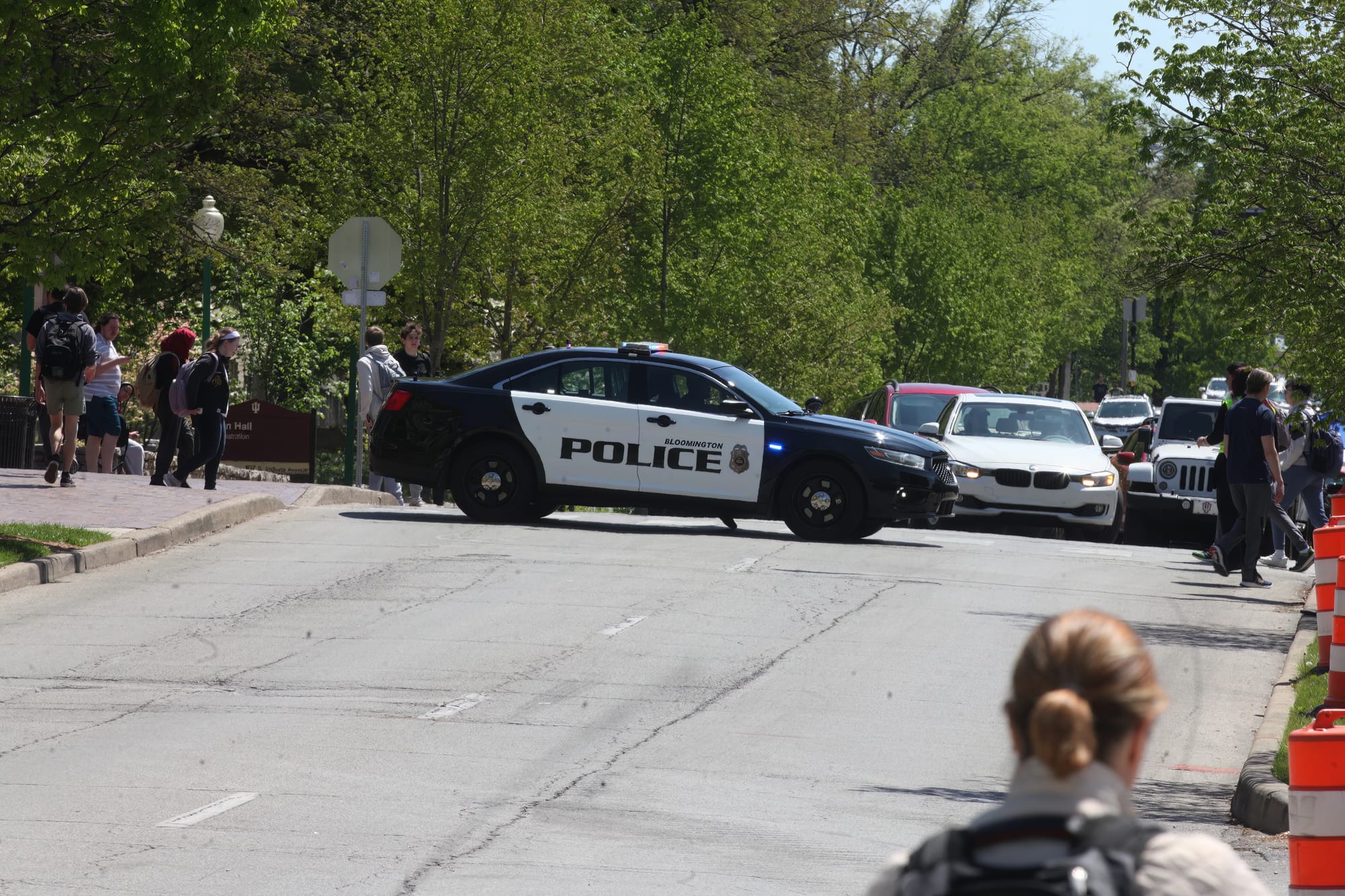




Comments ()